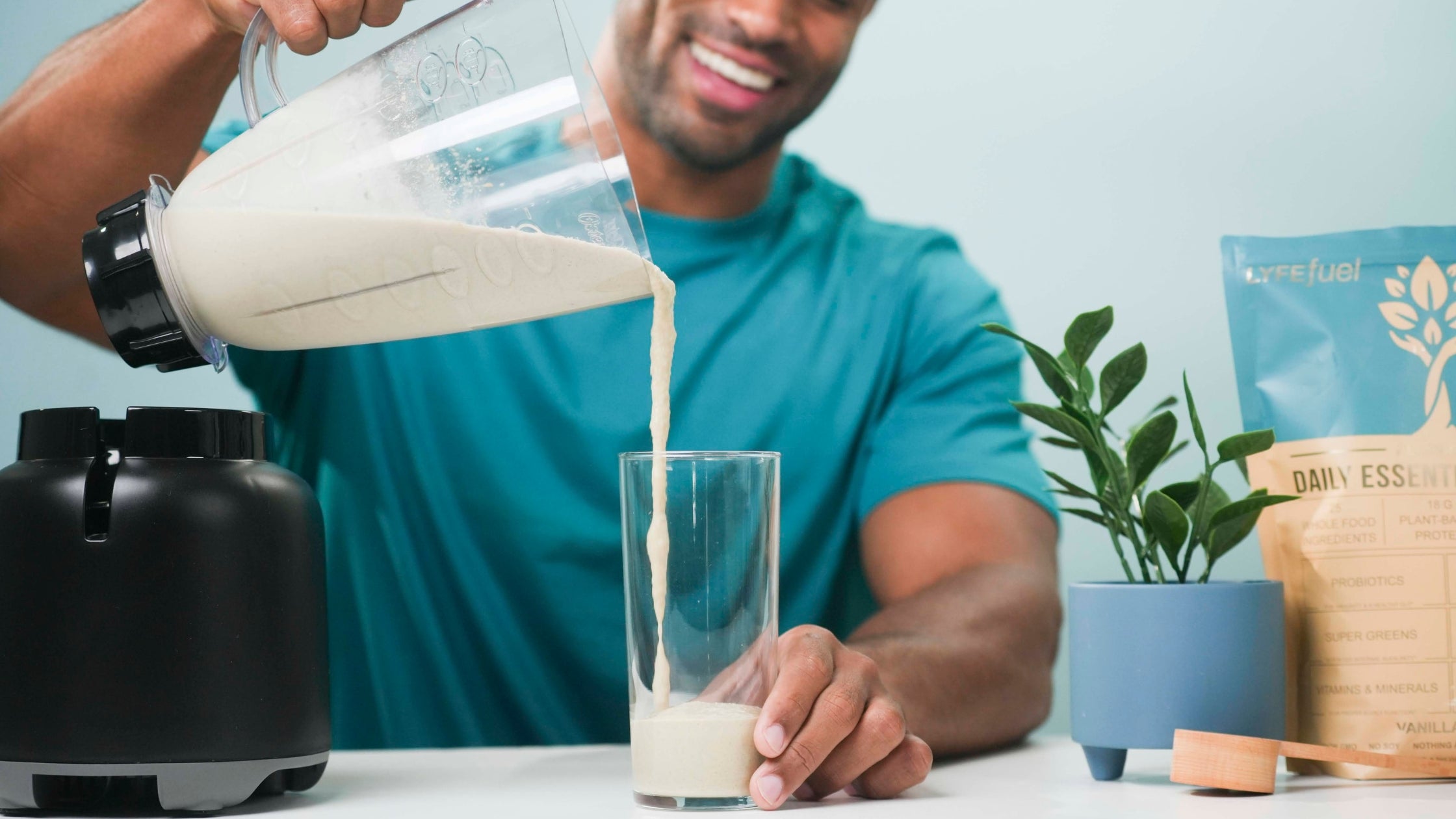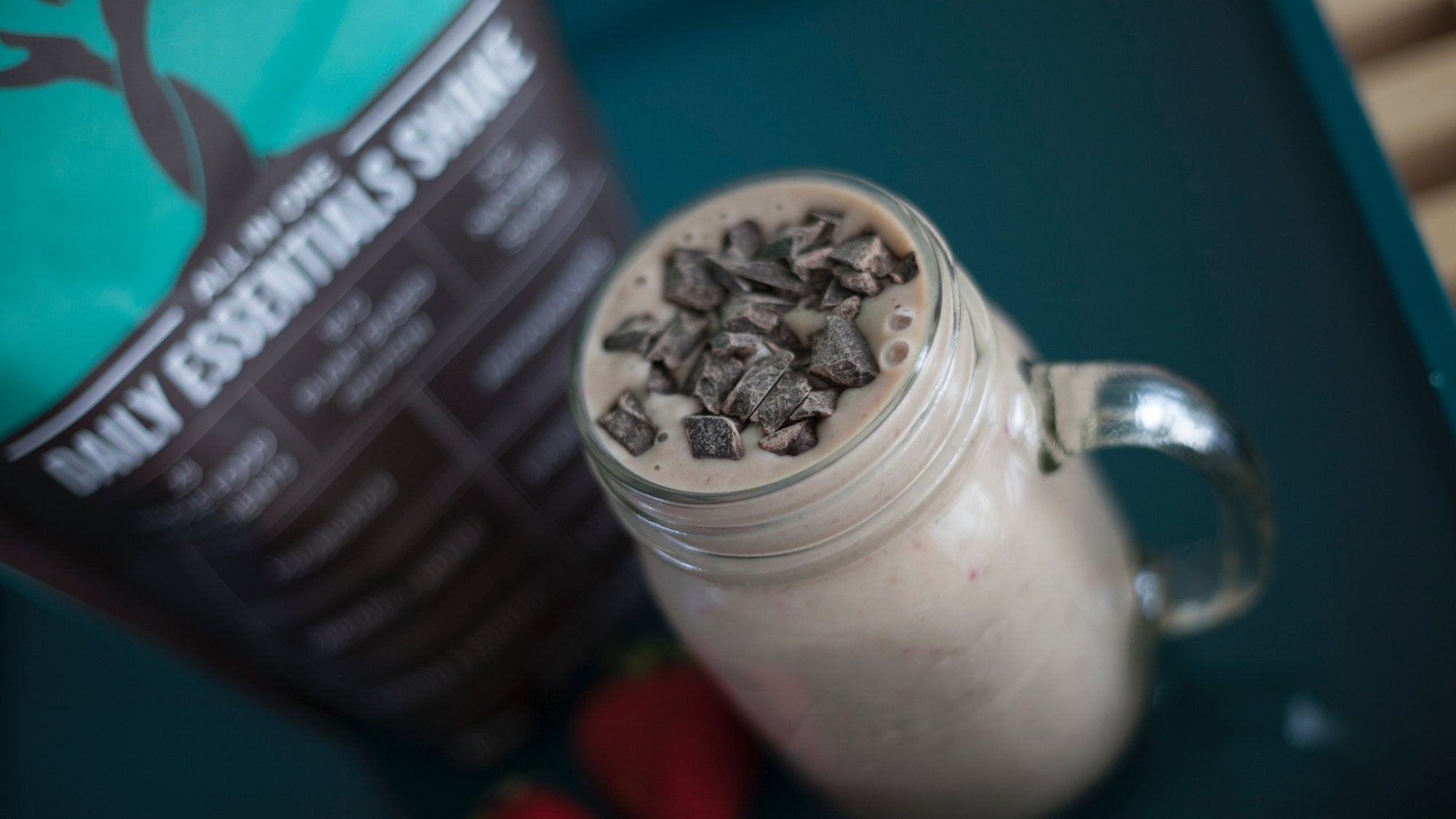lyfefuel-main.myshopify.com
[{"id":6974100996159,"title":"Adaptogen Bundle","handle":"adaptogen-bundle","description":"\u003cmeta charset=\"utf-8\"\u003e\n\u003cdiv class=\"flex-1 overflow-hidden\"\u003e\n\u003cdiv class=\"react-scroll-to-bottom--css-rpqkf-79elbk h-full\"\u003e\n\u003cdiv class=\"react-scroll-to-bottom--css-rpqkf-1n7m0yu\"\u003e\n\u003cdiv class=\"flex flex-col pb-9 text-sm\"\u003e\n\u003cdiv data-testid=\"conversation-turn-3\" class=\"w-full text-token-text-primary\"\u003e\n\u003cdiv class=\"px-4 py-2 justify-center text-base md:gap-6 m-auto\"\u003e\n\u003cdiv class=\"flex flex-1 text-base mx-auto gap-3 md:px-5 lg:px-1 xl:px-5 md:max-w-3xl lg:max-w-[40rem] xl:max-w-[48rem] } group final-completion\"\u003e\n\u003cdiv class=\"relative flex w-full flex-col lg:w-[calc(100%-115px)] agent-turn\"\u003e\n\u003cdiv class=\"flex-col gap-1 md:gap-3\"\u003e\n\u003cdiv class=\"flex flex-grow flex-col max-w-full\"\u003e\n\u003cdiv class=\"min-h-[20px] text-message flex flex-col items-start gap-3 whitespace-pre-wrap break-words [.text-message+\u0026amp;]:mt-5 overflow-x-auto\" data-message-id=\"371dedda-75c9-42ca-aebd-79160fa35664\" data-message-author-role=\"assistant\"\u003e\n\u003cdiv class=\"markdown prose w-full break-words dark:prose-invert light\"\u003e\n\u003cp\u003eThe LyfeFuel Adaptogen Bundle is a carefully curated selection of premium adaptogenic supplements designed to support your body's resilience in the face of stress and enhance overall well-being. This thoughtfully crafted bundle combines the power of adaptogenic herbs and nutrients known for their ability to help the body adapt to various stressors, promoting balance and vitality. Whether you're navigating the demands of a busy lifestyle or seeking natural support for your wellness journey, the LyfeFuel Adaptogen Bundle offers a harmonious blend of ingredients to help you thrive in the midst of life's challenges. Elevate your daily routine and promote a sense of calm and balance with this synergistic collection of adaptogens.\u003c\/p\u003e\n\u003c\/div\u003e\n\u003c\/div\u003e\n\u003c\/div\u003e\n\u003c\/div\u003e\n\u003c\/div\u003e\n\u003c\/div\u003e\n\u003c\/div\u003e\n\u003c\/div\u003e\n\u003c\/div\u003e\n\u003c\/div\u003e\n\u003c\/div\u003e\n\u003c\/div\u003e\n\u003cdiv class=\"w-full pt-2 md:pt-0 dark:border-white\/20 md:border-transparent md:dark:border-transparent md:w-[calc(100%-.5rem)]\"\u003e\u003cform class=\"stretch mx-2 flex flex-row gap-3 last:mb-2 md:mx-4 md:last:mb-6 lg:mx-auto lg:max-w-2xl xl:max-w-3xl\"\u003e\n\u003cdiv class=\"relative flex h-full flex-1 items-stretch md:flex-col\"\u003e\n\u003cdiv class=\"flex w-full items-center\"\u003e\u003cbr\u003e\u003c\/div\u003e\n\u003c\/div\u003e\n\u003c\/form\u003e\u003c\/div\u003e","published_at":"2022-07-18T00:05:12-07:00","created_at":"2022-07-18T00:05:10-07:00","vendor":"LyfeFuel","type":"Bundle","tags":["adaptogen supplement"],"price":10000,"price_min":10000,"price_max":10000,"available":true,"price_varies":false,"compare_at_price":14000,"compare_at_price_min":14000,"compare_at_price_max":14000,"compare_at_price_varies":false,"variants":[{"id":39724962545727,"title":"Default Title","option1":"Default Title","option2":null,"option3":null,"sku":"ADAPTOGEN-BUNDLE","requires_shipping":true,"taxable":true,"featured_image":null,"available":true,"name":"Adaptogen Bundle","public_title":null,"options":["Default Title"],"price":10000,"weight":604,"compare_at_price":14000,"inventory_quantity":79,"inventory_management":"shopify","inventory_policy":"continue","barcode":"","requires_selling_plan":false,"selling_plan_allocations":[]}],"images":["\/\/lyfefuel.com\/cdn\/shop\/products\/adaptogen-bundle-min.png?v=1658128859"],"featured_image":"\/\/lyfefuel.com\/cdn\/shop\/products\/adaptogen-bundle-min.png?v=1658128859","options":["Title"],"media":[{"alt":null,"id":22091957796927,"position":1,"preview_image":{"aspect_ratio":0.934,"height":1436,"width":1341,"src":"\/\/lyfefuel.com\/cdn\/shop\/products\/adaptogen-bundle-min.png?v=1658128859"},"aspect_ratio":0.934,"height":1436,"media_type":"image","src":"\/\/lyfefuel.com\/cdn\/shop\/products\/adaptogen-bundle-min.png?v=1658128859","width":1341}],"requires_selling_plan":false,"selling_plan_groups":[],"content":"\u003cmeta charset=\"utf-8\"\u003e\n\u003cdiv class=\"flex-1 overflow-hidden\"\u003e\n\u003cdiv class=\"react-scroll-to-bottom--css-rpqkf-79elbk h-full\"\u003e\n\u003cdiv class=\"react-scroll-to-bottom--css-rpqkf-1n7m0yu\"\u003e\n\u003cdiv class=\"flex flex-col pb-9 text-sm\"\u003e\n\u003cdiv data-testid=\"conversation-turn-3\" class=\"w-full text-token-text-primary\"\u003e\n\u003cdiv class=\"px-4 py-2 justify-center text-base md:gap-6 m-auto\"\u003e\n\u003cdiv class=\"flex flex-1 text-base mx-auto gap-3 md:px-5 lg:px-1 xl:px-5 md:max-w-3xl lg:max-w-[40rem] xl:max-w-[48rem] } group final-completion\"\u003e\n\u003cdiv class=\"relative flex w-full flex-col lg:w-[calc(100%-115px)] agent-turn\"\u003e\n\u003cdiv class=\"flex-col gap-1 md:gap-3\"\u003e\n\u003cdiv class=\"flex flex-grow flex-col max-w-full\"\u003e\n\u003cdiv class=\"min-h-[20px] text-message flex flex-col items-start gap-3 whitespace-pre-wrap break-words [.text-message+\u0026amp;]:mt-5 overflow-x-auto\" data-message-id=\"371dedda-75c9-42ca-aebd-79160fa35664\" data-message-author-role=\"assistant\"\u003e\n\u003cdiv class=\"markdown prose w-full break-words dark:prose-invert light\"\u003e\n\u003cp\u003eThe LyfeFuel Adaptogen Bundle is a carefully curated selection of premium adaptogenic supplements designed to support your body's resilience in the face of stress and enhance overall well-being. This thoughtfully crafted bundle combines the power of adaptogenic herbs and nutrients known for their ability to help the body adapt to various stressors, promoting balance and vitality. Whether you're navigating the demands of a busy lifestyle or seeking natural support for your wellness journey, the LyfeFuel Adaptogen Bundle offers a harmonious blend of ingredients to help you thrive in the midst of life's challenges. Elevate your daily routine and promote a sense of calm and balance with this synergistic collection of adaptogens.\u003c\/p\u003e\n\u003c\/div\u003e\n\u003c\/div\u003e\n\u003c\/div\u003e\n\u003c\/div\u003e\n\u003c\/div\u003e\n\u003c\/div\u003e\n\u003c\/div\u003e\n\u003c\/div\u003e\n\u003c\/div\u003e\n\u003c\/div\u003e\n\u003c\/div\u003e\n\u003c\/div\u003e\n\u003cdiv class=\"w-full pt-2 md:pt-0 dark:border-white\/20 md:border-transparent md:dark:border-transparent md:w-[calc(100%-.5rem)]\"\u003e\u003cform class=\"stretch mx-2 flex flex-row gap-3 last:mb-2 md:mx-4 md:last:mb-6 lg:mx-auto lg:max-w-2xl xl:max-w-3xl\"\u003e\n\u003cdiv class=\"relative flex h-full flex-1 items-stretch md:flex-col\"\u003e\n\u003cdiv class=\"flex w-full items-center\"\u003e\u003cbr\u003e\u003c\/div\u003e\n\u003c\/div\u003e\n\u003c\/form\u003e\u003c\/div\u003e"},{"id":6860489031743,"title":"Balance","handle":"balance","description":"\u003cspan style=\"font-weight: 400;\"\u003eA unique blend of adaptogenic mushrooms \u0026amp; ancient medicinal herbs shown to boost adaptive capacity, regulate hormones, and reduce overwhelm. Balance is formulated to help you adapt to the ups and downs of an unbalanced world.\u003c\/span\u003e","published_at":"2022-01-25T01:16:38-08:00","created_at":"2022-01-25T01:16:36-08:00","vendor":"LyfeFuel","type":"Vitamins \u0026 Supplements","tags":["adaptogen supplement"],"price":3500,"price_min":3500,"price_max":3500,"available":true,"price_varies":false,"compare_at_price":null,"compare_at_price_min":0,"compare_at_price_max":0,"compare_at_price_varies":false,"variants":[{"id":40623546957887,"title":"Stress Support","option1":"Stress Support","option2":null,"option3":null,"sku":"BALANCE","requires_shipping":true,"taxable":true,"featured_image":null,"available":true,"name":"Balance - Stress Support","public_title":"Stress Support","options":["Stress Support"],"price":3500,"weight":151,"compare_at_price":null,"inventory_quantity":134,"inventory_management":"shopify","inventory_policy":"deny","barcode":"767023097034","requires_selling_plan":false,"selling_plan_allocations":[{"price_adjustments":[{"position":1,"price":3000}],"price":3000,"compare_at_price":3500,"per_delivery_price":3000,"selling_plan_id":563773503,"selling_plan_group_id":"d1c31b7d875f371afdda85ee0906e6c15aee403a"}]}],"images":["\/\/lyfefuel.com\/cdn\/shop\/files\/balance_6eb0a1c3-42c2-4928-aa62-0912e9606832.png?v=1713418098","\/\/lyfefuel.com\/cdn\/shop\/files\/balance_51cd633e-a08a-4281-ae93-4816e466923f.png?v=1713418098","\/\/lyfefuel.com\/cdn\/shop\/files\/balance_d58cccc3-f9a6-4152-99a1-f8924e54afd7.png?v=1713418098","\/\/lyfefuel.com\/cdn\/shop\/products\/Balance.png?v=1713418098"],"featured_image":"\/\/lyfefuel.com\/cdn\/shop\/files\/balance_6eb0a1c3-42c2-4928-aa62-0912e9606832.png?v=1713418098","options":["Boost"],"media":[{"alt":null,"id":24360249065535,"position":1,"preview_image":{"aspect_ratio":1.001,"height":1696,"width":1697,"src":"\/\/lyfefuel.com\/cdn\/shop\/files\/balance_6eb0a1c3-42c2-4928-aa62-0912e9606832.png?v=1713418098"},"aspect_ratio":1.001,"height":1696,"media_type":"image","src":"\/\/lyfefuel.com\/cdn\/shop\/files\/balance_6eb0a1c3-42c2-4928-aa62-0912e9606832.png?v=1713418098","width":1697},{"alt":null,"id":23688912797759,"position":2,"preview_image":{"aspect_ratio":1.0,"height":1080,"width":1080,"src":"\/\/lyfefuel.com\/cdn\/shop\/files\/balance_51cd633e-a08a-4281-ae93-4816e466923f.png?v=1713418098"},"aspect_ratio":1.0,"height":1080,"media_type":"image","src":"\/\/lyfefuel.com\/cdn\/shop\/files\/balance_51cd633e-a08a-4281-ae93-4816e466923f.png?v=1713418098","width":1080},{"alt":null,"id":23521790787647,"position":3,"preview_image":{"aspect_ratio":1.0,"height":2000,"width":2000,"src":"\/\/lyfefuel.com\/cdn\/shop\/files\/balance_d58cccc3-f9a6-4152-99a1-f8924e54afd7.png?v=1713418098"},"aspect_ratio":1.0,"height":2000,"media_type":"image","src":"\/\/lyfefuel.com\/cdn\/shop\/files\/balance_d58cccc3-f9a6-4152-99a1-f8924e54afd7.png?v=1713418098","width":2000},{"alt":null,"id":21623431397439,"position":4,"preview_image":{"aspect_ratio":1.0,"height":2500,"width":2500,"src":"\/\/lyfefuel.com\/cdn\/shop\/products\/Balance.png?v=1713418098"},"aspect_ratio":1.0,"height":2500,"media_type":"image","src":"\/\/lyfefuel.com\/cdn\/shop\/products\/Balance.png?v=1713418098","width":2500}],"requires_selling_plan":false,"selling_plan_groups":[{"id":"d1c31b7d875f371afdda85ee0906e6c15aee403a","name":"Subscription","options":[{"name":"Subscription","position":1,"values":["every month"]}],"selling_plans":[{"id":563773503,"name":"every month","description":null,"options":[{"name":"Subscription","position":1,"value":"every month"}],"recurring_deliveries":true,"price_adjustments":[{"order_count":null,"position":1,"value_type":"price","value":3000}],"checkout_charge":{"value_type":"percentage","value":100}}],"app_id":"SKIO"}],"content":"\u003cspan style=\"font-weight: 400;\"\u003eA unique blend of adaptogenic mushrooms \u0026amp; ancient medicinal herbs shown to boost adaptive capacity, regulate hormones, and reduce overwhelm. Balance is formulated to help you adapt to the ups and downs of an unbalanced world.\u003c\/span\u003e"},{"id":6860489850943,"title":"Calm","handle":"calm","description":"\u003cspan style=\"font-weight: 400;\"\u003eA unique blend of adaptogenic mushrooms \u0026amp; ancient medicinal herbs shown to help slow down, quiet the mind, and reduce restlessness. Calm is formulated to put your mind and body at ease for a more chilled out demeanor.\u003c\/span\u003e","published_at":"2022-01-25T01:19:02-08:00","created_at":"2022-01-25T01:19:00-08:00","vendor":"LyfeFuel","type":"Vitamins \u0026 Supplements","tags":["adaptogen supplement"],"price":3500,"price_min":3500,"price_max":3500,"available":true,"price_varies":false,"compare_at_price":null,"compare_at_price_min":0,"compare_at_price_max":0,"compare_at_price_varies":false,"variants":[{"id":40623562588223,"title":"Mood Support","option1":"Mood Support","option2":null,"option3":null,"sku":"CALM","requires_shipping":true,"taxable":true,"featured_image":null,"available":true,"name":"Calm - Mood Support","public_title":"Mood Support","options":["Mood Support"],"price":3500,"weight":151,"compare_at_price":null,"inventory_quantity":79,"inventory_management":"shopify","inventory_policy":"deny","barcode":"767023097027","requires_selling_plan":false,"selling_plan_allocations":[{"price_adjustments":[{"position":1,"price":3000}],"price":3000,"compare_at_price":3500,"per_delivery_price":3000,"selling_plan_id":563806271,"selling_plan_group_id":"d1c31b7d875f371afdda85ee0906e6c15aee403a"}]}],"images":["\/\/lyfefuel.com\/cdn\/shop\/files\/calm_3f296edc-8b3d-4dd9-bafe-65ff124d5fdd.png?v=1713417775","\/\/lyfefuel.com\/cdn\/shop\/files\/calm_20bc7cf4-bddc-4562-afe4-47d3a90e5ff7.png?v=1713417775","\/\/lyfefuel.com\/cdn\/shop\/files\/calm_e6db9f5e-58d6-49e0-8150-97013fa22a8b.png?v=1713417775","\/\/lyfefuel.com\/cdn\/shop\/products\/Calm.png?v=1713417775"],"featured_image":"\/\/lyfefuel.com\/cdn\/shop\/files\/calm_3f296edc-8b3d-4dd9-bafe-65ff124d5fdd.png?v=1713417775","options":["Boost"],"media":[{"alt":null,"id":24360241299519,"position":1,"preview_image":{"aspect_ratio":1.001,"height":1696,"width":1697,"src":"\/\/lyfefuel.com\/cdn\/shop\/files\/calm_3f296edc-8b3d-4dd9-bafe-65ff124d5fdd.png?v=1713417775"},"aspect_ratio":1.001,"height":1696,"media_type":"image","src":"\/\/lyfefuel.com\/cdn\/shop\/files\/calm_3f296edc-8b3d-4dd9-bafe-65ff124d5fdd.png?v=1713417775","width":1697},{"alt":null,"id":23688907587647,"position":2,"preview_image":{"aspect_ratio":1.0,"height":1080,"width":1080,"src":"\/\/lyfefuel.com\/cdn\/shop\/files\/calm_20bc7cf4-bddc-4562-afe4-47d3a90e5ff7.png?v=1713417775"},"aspect_ratio":1.0,"height":1080,"media_type":"image","src":"\/\/lyfefuel.com\/cdn\/shop\/files\/calm_20bc7cf4-bddc-4562-afe4-47d3a90e5ff7.png?v=1713417775","width":1080},{"alt":null,"id":23521791639615,"position":3,"preview_image":{"aspect_ratio":1.0,"height":2000,"width":2000,"src":"\/\/lyfefuel.com\/cdn\/shop\/files\/calm_e6db9f5e-58d6-49e0-8150-97013fa22a8b.png?v=1713417775"},"aspect_ratio":1.0,"height":2000,"media_type":"image","src":"\/\/lyfefuel.com\/cdn\/shop\/files\/calm_e6db9f5e-58d6-49e0-8150-97013fa22a8b.png?v=1713417775","width":2000},{"alt":null,"id":21623428907071,"position":4,"preview_image":{"aspect_ratio":1.0,"height":2500,"width":2500,"src":"\/\/lyfefuel.com\/cdn\/shop\/products\/Calm.png?v=1713417775"},"aspect_ratio":1.0,"height":2500,"media_type":"image","src":"\/\/lyfefuel.com\/cdn\/shop\/products\/Calm.png?v=1713417775","width":2500}],"requires_selling_plan":false,"selling_plan_groups":[{"id":"d1c31b7d875f371afdda85ee0906e6c15aee403a","name":"Subscription","options":[{"name":"Subscription","position":1,"values":["every month"]}],"selling_plans":[{"id":563806271,"name":"every month","description":null,"options":[{"name":"Subscription","position":1,"value":"every month"}],"recurring_deliveries":true,"price_adjustments":[{"order_count":null,"position":1,"value_type":"price","value":3000}],"checkout_charge":{"value_type":"percentage","value":100}}],"app_id":"SKIO"}],"content":"\u003cspan style=\"font-weight: 400;\"\u003eA unique blend of adaptogenic mushrooms \u0026amp; ancient medicinal herbs shown to help slow down, quiet the mind, and reduce restlessness. Calm is formulated to put your mind and body at ease for a more chilled out demeanor.\u003c\/span\u003e"},{"id":6844361539647,"title":"Clarity","handle":"clarity","description":"\u003cmeta charset=\"utf-8\"\u003e\n\u003cdiv data-mce-fragment=\"1\"\u003e\n\u003cmeta charset=\"utf-8\"\u003e\n\u003cdiv\u003eA unique adaptogenic blend of organic mushrooms and therapeutic herbs shown to spark creativity, improve focus, and reduce brain fog. Best used daily as a functional wellness boost to help you get your head out of the clouds and focused on what’s important.\u003cbr\u003e\n\u003c\/div\u003e\n\u003c\/div\u003e","published_at":"2022-01-02T20:48:54-08:00","created_at":"2022-01-02T20:45:16-08:00","vendor":"LyfeFuel","type":"Vitamins \u0026 Supplements","tags":["adaptogen supplement"],"price":3500,"price_min":3500,"price_max":3500,"available":true,"price_varies":false,"compare_at_price":null,"compare_at_price_min":0,"compare_at_price_max":0,"compare_at_price_varies":false,"variants":[{"id":40623567274047,"title":"Cognitive Support","option1":"Cognitive Support","option2":null,"option3":null,"sku":"CLARITY","requires_shipping":true,"taxable":true,"featured_image":null,"available":true,"name":"Clarity - Cognitive Support","public_title":"Cognitive Support","options":["Cognitive Support"],"price":3500,"weight":151,"compare_at_price":null,"inventory_quantity":265,"inventory_management":"shopify","inventory_policy":"deny","barcode":"767023097041","requires_selling_plan":false,"selling_plan_allocations":[{"price_adjustments":[{"position":1,"price":3000}],"price":3000,"compare_at_price":3500,"per_delivery_price":3000,"selling_plan_id":555647039,"selling_plan_group_id":"d1c31b7d875f371afdda85ee0906e6c15aee403a"}]}],"images":["\/\/lyfefuel.com\/cdn\/shop\/files\/clarity_d75f287a-6fc7-4317-b326-beea372f20bb.png?v=1713418175","\/\/lyfefuel.com\/cdn\/shop\/files\/clarity_ef231a74-28e9-4093-a314-ce57de4e8b2f.png?v=1713418175","\/\/lyfefuel.com\/cdn\/shop\/files\/clarity_a4227cec-cafe-4705-8fd5-fb8fec5a060c.png?v=1713418175","\/\/lyfefuel.com\/cdn\/shop\/products\/Clarity.png?v=1713418175"],"featured_image":"\/\/lyfefuel.com\/cdn\/shop\/files\/clarity_d75f287a-6fc7-4317-b326-beea372f20bb.png?v=1713418175","options":["Boost"],"media":[{"alt":null,"id":24360251097151,"position":1,"preview_image":{"aspect_ratio":1.001,"height":1696,"width":1697,"src":"\/\/lyfefuel.com\/cdn\/shop\/files\/clarity_d75f287a-6fc7-4317-b326-beea372f20bb.png?v=1713418175"},"aspect_ratio":1.001,"height":1696,"media_type":"image","src":"\/\/lyfefuel.com\/cdn\/shop\/files\/clarity_d75f287a-6fc7-4317-b326-beea372f20bb.png?v=1713418175","width":1697},{"alt":null,"id":23688911257663,"position":2,"preview_image":{"aspect_ratio":1.0,"height":1080,"width":1080,"src":"\/\/lyfefuel.com\/cdn\/shop\/files\/clarity_ef231a74-28e9-4093-a314-ce57de4e8b2f.png?v=1713418175"},"aspect_ratio":1.0,"height":1080,"media_type":"image","src":"\/\/lyfefuel.com\/cdn\/shop\/files\/clarity_ef231a74-28e9-4093-a314-ce57de4e8b2f.png?v=1713418175","width":1080},{"alt":null,"id":23521791803455,"position":3,"preview_image":{"aspect_ratio":1.0,"height":2000,"width":2000,"src":"\/\/lyfefuel.com\/cdn\/shop\/files\/clarity_a4227cec-cafe-4705-8fd5-fb8fec5a060c.png?v=1713418175"},"aspect_ratio":1.0,"height":2000,"media_type":"image","src":"\/\/lyfefuel.com\/cdn\/shop\/files\/clarity_a4227cec-cafe-4705-8fd5-fb8fec5a060c.png?v=1713418175","width":2000},{"alt":null,"id":21623430938687,"position":4,"preview_image":{"aspect_ratio":1.0,"height":2500,"width":2500,"src":"\/\/lyfefuel.com\/cdn\/shop\/products\/Clarity.png?v=1713418175"},"aspect_ratio":1.0,"height":2500,"media_type":"image","src":"\/\/lyfefuel.com\/cdn\/shop\/products\/Clarity.png?v=1713418175","width":2500}],"requires_selling_plan":false,"selling_plan_groups":[{"id":"d1c31b7d875f371afdda85ee0906e6c15aee403a","name":"Subscription","options":[{"name":"Subscription","position":1,"values":["every month"]}],"selling_plans":[{"id":555647039,"name":"every month","description":null,"options":[{"name":"Subscription","position":1,"value":"every month"}],"recurring_deliveries":true,"price_adjustments":[{"order_count":null,"position":1,"value_type":"price","value":3000}],"checkout_charge":{"value_type":"percentage","value":100}}],"app_id":"SKIO"}],"content":"\u003cmeta charset=\"utf-8\"\u003e\n\u003cdiv data-mce-fragment=\"1\"\u003e\n\u003cmeta charset=\"utf-8\"\u003e\n\u003cdiv\u003eA unique adaptogenic blend of organic mushrooms and therapeutic herbs shown to spark creativity, improve focus, and reduce brain fog. Best used daily as a functional wellness boost to help you get your head out of the clouds and focused on what’s important.\u003cbr\u003e\n\u003c\/div\u003e\n\u003c\/div\u003e"},{"id":6867562168383,"title":"Essentials Bar","handle":"essentials-nutrition-bar-brownie","description":"\u003cmeta charset=\"utf-8\"\u003eA delicious \u0026amp; effortless way to fuel your busy life on the go, this irresistible combo of 21 essential micronutrients from real whole foods, plus a “secret” superfood to stave off hunger provides a nutritionally complete mini-meal to keep you balanced \u0026amp; energized.\u003cbr data-mce-fragment=\"1\"\u003e\u003cbr\u003e","published_at":"2022-02-24T22:26:06-08:00","created_at":"2022-02-02T21:02:53-08:00","vendor":"LyfeFuel","type":"Protein Bar","tags":["Essentials Bar"],"price":4000,"price_min":4000,"price_max":4000,"available":true,"price_varies":false,"compare_at_price":null,"compare_at_price_min":0,"compare_at_price_max":0,"compare_at_price_varies":false,"variants":[{"id":39792905846847,"title":"Fudgy Maca Brownie","option1":"Fudgy Maca Brownie","option2":null,"option3":null,"sku":"ESS-BAR-CHOC-BOX","requires_shipping":true,"taxable":true,"featured_image":{"id":31441049321535,"product_id":6867562168383,"position":1,"created_at":"2024-04-17T21:43:56-07:00","updated_at":"2024-04-17T21:44:02-07:00","alt":null,"width":2228,"height":2228,"src":"\/\/lyfefuel.com\/cdn\/shop\/files\/ChocolateBar_MainPhoto.png?v=1713415442","variant_ids":[39792905846847]},"available":true,"name":"Essentials Bar - Fudgy Maca Brownie","public_title":"Fudgy Maca Brownie","options":["Fudgy Maca Brownie"],"price":4000,"weight":540,"compare_at_price":null,"inventory_quantity":-32,"inventory_management":"shopify","inventory_policy":"continue","barcode":"767023097010","featured_media":{"alt":null,"id":24360187134015,"position":1,"preview_image":{"aspect_ratio":1.0,"height":2228,"width":2228,"src":"\/\/lyfefuel.com\/cdn\/shop\/files\/ChocolateBar_MainPhoto.png?v=1713415442"}},"requires_selling_plan":false,"selling_plan_allocations":[{"price_adjustments":[{"position":1,"price":3500}],"price":3500,"compare_at_price":4000,"per_delivery_price":3500,"selling_plan_id":1151369279,"selling_plan_group_id":"73368739bb542e3e0213fa567cbf8af321001b7f"}]}],"images":["\/\/lyfefuel.com\/cdn\/shop\/files\/ChocolateBar_MainPhoto.png?v=1713415442","\/\/lyfefuel.com\/cdn\/shop\/files\/ChocolateBar_MainPhoto_1080x_1.png?v=1713415442","\/\/lyfefuel.com\/cdn\/shop\/products\/Bar-Chocolate3DRendering.png?v=1713415442","\/\/lyfefuel.com\/cdn\/shop\/files\/essentials-bar-brownie.png?v=1713414926"],"featured_image":"\/\/lyfefuel.com\/cdn\/shop\/files\/ChocolateBar_MainPhoto.png?v=1713415442","options":["Box of 10"],"media":[{"alt":null,"id":24360187134015,"position":1,"preview_image":{"aspect_ratio":1.0,"height":2228,"width":2228,"src":"\/\/lyfefuel.com\/cdn\/shop\/files\/ChocolateBar_MainPhoto.png?v=1713415442"},"aspect_ratio":1.0,"height":2228,"media_type":"image","src":"\/\/lyfefuel.com\/cdn\/shop\/files\/ChocolateBar_MainPhoto.png?v=1713415442","width":2228},{"alt":null,"id":23694750875711,"position":2,"preview_image":{"aspect_ratio":1.0,"height":1080,"width":1080,"src":"\/\/lyfefuel.com\/cdn\/shop\/files\/ChocolateBar_MainPhoto_1080x_1.png?v=1713415442"},"aspect_ratio":1.0,"height":1080,"media_type":"image","src":"\/\/lyfefuel.com\/cdn\/shop\/files\/ChocolateBar_MainPhoto_1080x_1.png?v=1713415442","width":1080},{"alt":null,"id":21882366328895,"position":3,"preview_image":{"aspect_ratio":1.0,"height":2500,"width":2500,"src":"\/\/lyfefuel.com\/cdn\/shop\/products\/Bar-Chocolate3DRendering.png?v=1713415442"},"aspect_ratio":1.0,"height":2500,"media_type":"image","src":"\/\/lyfefuel.com\/cdn\/shop\/products\/Bar-Chocolate3DRendering.png?v=1713415442","width":2500},{"alt":null,"id":24360179531839,"position":4,"preview_image":{"aspect_ratio":1.001,"height":1696,"width":1697,"src":"\/\/lyfefuel.com\/cdn\/shop\/files\/essentials-bar-brownie.png?v=1713414926"},"aspect_ratio":1.001,"height":1696,"media_type":"image","src":"\/\/lyfefuel.com\/cdn\/shop\/files\/essentials-bar-brownie.png?v=1713414926","width":1697}],"requires_selling_plan":false,"selling_plan_groups":[{"id":"73368739bb542e3e0213fa567cbf8af321001b7f","name":"Subscription","options":[{"name":"Every-gid:\/\/shopify\/ProductVariant\/39792905846847","position":1,"values":["every month"]}],"selling_plans":[{"id":1151369279,"name":"every month","description":null,"options":[{"name":"Every-gid:\/\/shopify\/ProductVariant\/39792905846847","position":1,"value":"every month"}],"recurring_deliveries":true,"price_adjustments":[{"order_count":null,"position":1,"value_type":"price","value":3500}],"checkout_charge":{"value_type":"percentage","value":100}}],"app_id":"SKIO"}],"content":"\u003cmeta charset=\"utf-8\"\u003eA delicious \u0026amp; effortless way to fuel your busy life on the go, this irresistible combo of 21 essential micronutrients from real whole foods, plus a “secret” superfood to stave off hunger provides a nutritionally complete mini-meal to keep you balanced \u0026amp; energized.\u003cbr data-mce-fragment=\"1\"\u003e\u003cbr\u003e"},{"id":6868605239359,"title":"Essentials Bar","handle":"essentials-nutrition-bar-lemon","description":"\u003cp\u003e\u003cmeta charset=\"utf-8\"\u003eA delicious nutrient-dense mini meal from real food ingredients for fueling life on the go. An irresistible combo of plant-based protein, prebiotic fiber, powerful superfoods \u0026amp; 21 essential micronutrients to keep you balanced, energized, and living your fullest every day.\u003cbr data-mce-fragment=\"1\"\u003e\u003cbr\u003e\u003c\/p\u003e","published_at":"2022-02-24T22:26:28-08:00","created_at":"2022-02-04T00:42:43-08:00","vendor":"LyfeFuel","type":"Protein Bar","tags":["Essentials Bar"],"price":4000,"price_min":4000,"price_max":4000,"available":true,"price_varies":false,"compare_at_price":null,"compare_at_price_min":0,"compare_at_price_max":0,"compare_at_price_varies":false,"variants":[{"id":39792907452479,"title":"Lemon Ginger Tart","option1":"Lemon Ginger Tart","option2":null,"option3":null,"sku":"ESS-BAR-LEMON-BOX","requires_shipping":true,"taxable":true,"featured_image":{"id":31441052663871,"product_id":6868605239359,"position":1,"created_at":"2024-04-17T21:48:25-07:00","updated_at":"2024-04-17T21:48:40-07:00","alt":null,"width":2228,"height":2228,"src":"\/\/lyfefuel.com\/cdn\/shop\/files\/LemonBar_MainPhoto.png?v=1713415720","variant_ids":[39792907452479]},"available":true,"name":"Essentials Bar - Lemon Ginger Tart","public_title":"Lemon Ginger Tart","options":["Lemon Ginger Tart"],"price":4000,"weight":540,"compare_at_price":null,"inventory_quantity":704,"inventory_management":"shopify","inventory_policy":"continue","barcode":"767023097003","featured_media":{"alt":null,"id":24360190869567,"position":1,"preview_image":{"aspect_ratio":1.0,"height":2228,"width":2228,"src":"\/\/lyfefuel.com\/cdn\/shop\/files\/LemonBar_MainPhoto.png?v=1713415720"}},"requires_selling_plan":false,"selling_plan_allocations":[{"price_adjustments":[{"position":1,"price":3500}],"price":3500,"compare_at_price":4000,"per_delivery_price":3500,"selling_plan_id":1151336511,"selling_plan_group_id":"d4ab4bf9649199971d6f4eef8242a633fb64bf92"}]}],"images":["\/\/lyfefuel.com\/cdn\/shop\/files\/LemonBar_MainPhoto.png?v=1713415720","\/\/lyfefuel.com\/cdn\/shop\/files\/LemonBar_BWhite_MainPhoto_1080x_24609c3d-f2b3-4234-bc1d-dfc5aa98ee92.png?v=1713415720","\/\/lyfefuel.com\/cdn\/shop\/products\/Bar-GingerLemon3DRendering.png?v=1713415720"],"featured_image":"\/\/lyfefuel.com\/cdn\/shop\/files\/LemonBar_MainPhoto.png?v=1713415720","options":["Box of 10"],"media":[{"alt":null,"id":24360190869567,"position":1,"preview_image":{"aspect_ratio":1.0,"height":2228,"width":2228,"src":"\/\/lyfefuel.com\/cdn\/shop\/files\/LemonBar_MainPhoto.png?v=1713415720"},"aspect_ratio":1.0,"height":2228,"media_type":"image","src":"\/\/lyfefuel.com\/cdn\/shop\/files\/LemonBar_MainPhoto.png?v=1713415720","width":2228},{"alt":null,"id":23694757396543,"position":2,"preview_image":{"aspect_ratio":1.0,"height":1080,"width":1080,"src":"\/\/lyfefuel.com\/cdn\/shop\/files\/LemonBar_BWhite_MainPhoto_1080x_24609c3d-f2b3-4234-bc1d-dfc5aa98ee92.png?v=1713415720"},"aspect_ratio":1.0,"height":1080,"media_type":"image","src":"\/\/lyfefuel.com\/cdn\/shop\/files\/LemonBar_BWhite_MainPhoto_1080x_24609c3d-f2b3-4234-bc1d-dfc5aa98ee92.png?v=1713415720","width":1080},{"alt":null,"id":21882367868991,"position":3,"preview_image":{"aspect_ratio":1.0,"height":2500,"width":2500,"src":"\/\/lyfefuel.com\/cdn\/shop\/products\/Bar-GingerLemon3DRendering.png?v=1713415720"},"aspect_ratio":1.0,"height":2500,"media_type":"image","src":"\/\/lyfefuel.com\/cdn\/shop\/products\/Bar-GingerLemon3DRendering.png?v=1713415720","width":2500}],"requires_selling_plan":false,"selling_plan_groups":[{"id":"d4ab4bf9649199971d6f4eef8242a633fb64bf92","name":"Subscription","options":[{"name":"Every-gid:\/\/shopify\/ProductVariant\/39792907452479","position":1,"values":["every month"]}],"selling_plans":[{"id":1151336511,"name":"every month","description":null,"options":[{"name":"Every-gid:\/\/shopify\/ProductVariant\/39792907452479","position":1,"value":"every month"}],"recurring_deliveries":true,"price_adjustments":[{"order_count":null,"position":1,"value_type":"price","value":3500}],"checkout_charge":{"value_type":"percentage","value":100}}],"app_id":"SKIO"}],"content":"\u003cp\u003e\u003cmeta charset=\"utf-8\"\u003eA delicious nutrient-dense mini meal from real food ingredients for fueling life on the go. An irresistible combo of plant-based protein, prebiotic fiber, powerful superfoods \u0026amp; 21 essential micronutrients to keep you balanced, energized, and living your fullest every day.\u003cbr data-mce-fragment=\"1\"\u003e\u003cbr\u003e\u003c\/p\u003e"},{"id":7327863373887,"title":"Essentials Bar Bundle","handle":"essentials-bar-bundle","description":"","published_at":"2024-03-14T00:31:32-07:00","created_at":"2024-03-13T23:37:19-07:00","vendor":"LyfeFuel","type":"","tags":["Hidden upsell recommendation"],"price":8000,"price_min":8000,"price_max":8000,"available":false,"price_varies":false,"compare_at_price":8000,"compare_at_price_min":8000,"compare_at_price_max":8000,"compare_at_price_varies":false,"variants":[{"id":40521056321599,"title":"Both Flavors","option1":"Both Flavors","option2":null,"option3":null,"sku":"ESS-BAR-1CHOC-1LEM","requires_shipping":true,"taxable":true,"featured_image":null,"available":false,"name":"Essentials Bar Bundle - Both Flavors","public_title":"Both Flavors","options":["Both Flavors"],"price":8000,"weight":1080,"compare_at_price":8000,"inventory_quantity":0,"inventory_management":"shopify","inventory_policy":"deny","barcode":"","requires_selling_plan":false,"selling_plan_allocations":[{"price_adjustments":[{"position":1,"price":7000}],"price":7000,"compare_at_price":8000,"per_delivery_price":7000,"selling_plan_id":1612447807,"selling_plan_group_id":"d1c31b7d875f371afdda85ee0906e6c15aee403a"}]}],"images":["\/\/lyfefuel.com\/cdn\/shop\/files\/essentials-bar-bundle.png?v=1710408935"],"featured_image":"\/\/lyfefuel.com\/cdn\/shop\/files\/essentials-bar-bundle.png?v=1710408935","options":["Flavor"],"media":[{"alt":null,"id":24173179568191,"position":1,"preview_image":{"aspect_ratio":1.036,"height":448,"width":464,"src":"\/\/lyfefuel.com\/cdn\/shop\/files\/essentials-bar-bundle.png?v=1710408935"},"aspect_ratio":1.036,"height":448,"media_type":"image","src":"\/\/lyfefuel.com\/cdn\/shop\/files\/essentials-bar-bundle.png?v=1710408935","width":464}],"requires_selling_plan":false,"selling_plan_groups":[{"id":"d1c31b7d875f371afdda85ee0906e6c15aee403a","name":"Subscription","options":[{"name":"Subscription","position":1,"values":["every month"]}],"selling_plans":[{"id":1612447807,"name":"every month","description":null,"options":[{"name":"Subscription","position":1,"value":"every month"}],"recurring_deliveries":true,"price_adjustments":[{"order_count":null,"position":1,"value_type":"price","value":7000}],"checkout_charge":{"value_type":"percentage","value":100}}],"app_id":"SKIO"}],"content":""},{"id":6616565612607,"title":"Essentials Shake","handle":"essentials-nutrition-shake","description":"\u003c!-- \u003cp\u003e class=\"oldesc\"\u003eThe Essentials is a nutritionally complete \u003cspan data-mce-fragment=\"1\"\u003eplant-based\u0026nbsp;\u003c\/span\u003emeal in powder form.\u003c\/p\u003e\n\u003cp\u003eIf there's only one thing you do for your health, this is it. It's precision nutrition made incredibly simple.\u003c\/p\u003e\n\u003cp\u003eNourish your body, control cravings, and fuel your active \u0026amp; busy lifestyle with the all-in-one Essentials shake. It is exactly what a whole food plant-based meal should be - nutritious and delicious! Providing the exact combination of vitamins, minerals, greens and fiber lacking in most diets, it fills the gaps to ensure you're getting your daily dose of wellness in every scoop.\u003c\/p\u003e--\u003e \u003cmeta name=\"keywords\" content=\"Meal Replacement Shakes\"\u003e\n\u003cdiv class=\"pro_desc\"\u003e\n\u003cp\u003e\u003cspan style=\"font-weight: 400;\"\u003eThe Essentials nutrition shake puts an end to random supplementation using food-based nutrients expertly combined and backed by science to \u003c\/span\u003eserve as a vegan, plant-based meal replacement shake that\u003cb\u003e \u003c\/b\u003e\u003cspan style=\"font-weight: 400;\"\u003eprovides the full benefits of a balanced diet without any of the hassles of meal prep.\u003c\/span\u003e\u003c\/p\u003e\n\u003cdiv class=\"check__content\"\u003e\n\u003cdiv class=\"mobile-hide\"\u003e\n\u003cdiv class=\"gradient\"\u003e\n\u003cdiv class=\"flex__check\"\u003e\n\u003cimg height=\"24\" width=\"24\" src=\"https:\/\/cdn.shopify.com\/s\/files\/1\/2001\/9829\/files\/check.png?v=1621750965\" alt=\"check\"\u003e \u003cspan data-mce-fragment=\"1\"\u003e \u003cspan class=\"Provides\"\u003e Vegan \u0026amp; Keto Friendly (Only 3g Net Carbs)\u003c\/span\u003e \u003c\/span\u003e\n\u003c\/div\u003e\n\u003cdiv class=\"flex__check\"\u003e\n\u003cimg height=\"24\" width=\"24\" src=\"https:\/\/cdn.shopify.com\/s\/files\/1\/2001\/9829\/files\/check.png?v=1621750965\" alt=\"check\"\u003e \u003cspan data-mce-fragment=\"1\"\u003e\u003cspan class=\"Provides\"\u003e Provides Clean Energy Without the Crash\u003c\/span\u003e\u003c\/span\u003e\n\u003c\/div\u003e\n\u003cdiv class=\"flex__check\"\u003e\n\u003cimg height=\"24\" width=\"24\" src=\"https:\/\/cdn.shopify.com\/s\/files\/1\/2001\/9829\/files\/check.png?v=1621750965\" alt=\"check\"\u003e \u003cspan data-mce-fragment=\"1\"\u003e\u003cspan class=\"Provides\"\u003e Naturally Curbs Hunger \u0026amp; Controls Cravings\u003c\/span\u003e\u003c\/span\u003e\n\u003c\/div\u003e\n\u003cdiv class=\"flex__check\"\u003e\n\u003cimg height=\"24\" width=\"24\" src=\"https:\/\/cdn.shopify.com\/s\/files\/1\/2001\/9829\/files\/check.png?v=1621750965\" alt=\"check\"\u003e \u003cspan data-mce-fragment=\"1\"\u003e\u003cspan class=\"Provides\"\u003e Replace Breakfast to Save Time \u0026amp; Money\u003c\/span\u003e\u003c\/span\u003e\n\u003c\/div\u003e\n\u003c\/div\u003e\n\u003c\/div\u003e\n\u003cdiv class=\"desktop-hide\"\u003e\n\u003cdiv\u003e\u003c\/div\u003e\n\u003cdiv class=\"flex__check\"\u003e\n\u003cimg height=\"24\" width=\"24\" src=\"https:\/\/cdn.shopify.com\/s\/files\/1\/2001\/9829\/files\/check.png?v=1621750965\" alt=\"check\"\u003e \u003cspan data-mce-fragment=\"1\"\u003e\u003cspan style=\"font-size: 3vw;\" class=\"\"\u003e Vegan \u0026amp; Keto Friendly (Only 3g Net Carbs)\u003c\/span\u003e\u003c\/span\u003e\n\u003c\/div\u003e\n\u003cdiv class=\"flex__check\"\u003e\n\u003cimg height=\"24\" width=\"24\" src=\"https:\/\/cdn.shopify.com\/s\/files\/1\/2001\/9829\/files\/check.png?v=1621750965\" alt=\"check\"\u003e \u003cspan data-mce-fragment=\"1\"\u003e\u003cspan style=\"font-size: 3vw;\" class=\"\"\u003e Provides Clean Energy Without the Crash\u003c\/span\u003e\u003c\/span\u003e\n\u003c\/div\u003e\n\u003cdiv class=\"flex__check\"\u003e\n\u003cimg height=\"24\" width=\"24\" src=\"https:\/\/cdn.shopify.com\/s\/files\/1\/2001\/9829\/files\/check.png?v=1621750965\" alt=\"check\"\u003e \u003cspan data-mce-fragment=\"1\"\u003e\u003cspan style=\"font-size: 3vw;\" class=\"\"\u003e Naturally Curbs Hunger \u0026amp; Controls Cravings\u003c\/span\u003e\u003c\/span\u003e\n\u003c\/div\u003e\n\u003cdiv class=\"flex__check\"\u003e\n\u003cimg height=\"24\" width=\"24\" src=\"https:\/\/cdn.shopify.com\/s\/files\/1\/2001\/9829\/files\/check.png?v=1621750965\" alt=\"check\"\u003e \u003cspan data-mce-fragment=\"1\"\u003e\u003cspan style=\"font-size: 3vw;\" class=\"\"\u003e Replace Breakfast to Save Time \u0026amp; Money\u003c\/span\u003e\u003c\/span\u003e\n\u003c\/div\u003e\n\u003c\/div\u003e\n\u003c\/div\u003e\n\u003c\/div\u003e","published_at":"2021-05-07T21:00:21-07:00","created_at":"2021-05-07T21:00:21-07:00","vendor":"LyfeFuel","type":"Meal Replacement","tags":[],"price":7000,"price_min":7000,"price_max":7000,"available":true,"price_varies":false,"compare_at_price":null,"compare_at_price_min":0,"compare_at_price_max":0,"compare_at_price_varies":false,"variants":[{"id":39335658618943,"title":"CHOCOLATE","option1":"CHOCOLATE","option2":null,"option3":null,"sku":"DESCHOCLG","requires_shipping":true,"taxable":false,"featured_image":{"id":31441044144191,"product_id":6616565612607,"position":16,"created_at":"2024-04-17T21:31:20-07:00","updated_at":"2024-04-17T21:31:20-07:00","alt":null,"width":1697,"height":1696,"src":"\/\/lyfefuel.com\/cdn\/shop\/files\/essentials-shake-chocolate.png?v=1713414680","variant_ids":[39335658618943]},"available":true,"name":"Essentials Shake - CHOCOLATE","public_title":"CHOCOLATE","options":["CHOCOLATE"],"price":7000,"weight":816,"compare_at_price":null,"inventory_quantity":1198,"inventory_management":"shopify","inventory_policy":"continue","barcode":"600140704105","featured_media":{"alt":null,"id":24360175829055,"position":16,"preview_image":{"aspect_ratio":1.001,"height":1696,"width":1697,"src":"\/\/lyfefuel.com\/cdn\/shop\/files\/essentials-shake-chocolate.png?v=1713414680"}},"requires_selling_plan":false,"selling_plan_allocations":[{"price_adjustments":[{"position":1,"price":6000}],"price":6000,"compare_at_price":7000,"per_delivery_price":6000,"selling_plan_id":491028543,"selling_plan_group_id":"1772f2bd1978e829d03f36a5ae45509bca25ca9d"}]},{"id":39335658586175,"title":"VANILLA","option1":"VANILLA","option2":null,"option3":null,"sku":"DESVANLG","requires_shipping":true,"taxable":false,"featured_image":{"id":31441044209727,"product_id":6616565612607,"position":17,"created_at":"2024-04-17T21:31:41-07:00","updated_at":"2024-04-17T21:31:41-07:00","alt":null,"width":1697,"height":1696,"src":"\/\/lyfefuel.com\/cdn\/shop\/files\/essentials-shake-vanilla.png?v=1713414701","variant_ids":[39335658586175]},"available":true,"name":"Essentials Shake - VANILLA","public_title":"VANILLA","options":["VANILLA"],"price":7000,"weight":816,"compare_at_price":null,"inventory_quantity":332,"inventory_management":"shopify","inventory_policy":"continue","barcode":"600140704099","featured_media":{"alt":null,"id":24360175927359,"position":17,"preview_image":{"aspect_ratio":1.001,"height":1696,"width":1697,"src":"\/\/lyfefuel.com\/cdn\/shop\/files\/essentials-shake-vanilla.png?v=1713414701"}},"requires_selling_plan":false,"selling_plan_allocations":[{"price_adjustments":[{"position":1,"price":6000}],"price":6000,"compare_at_price":7000,"per_delivery_price":6000,"selling_plan_id":490995775,"selling_plan_group_id":"3dc27a5e5c3f395677c836cade077eafb2522728"}]}],"images":["\/\/lyfefuel.com\/cdn\/shop\/files\/Essentials3D_1080x_12486f8a-0d99-40ef-b6ce-9800b1d56418.png?v=1695101789","\/\/lyfefuel.com\/cdn\/shop\/products\/Essentials3D.jpg?v=1695101789","\/\/lyfefuel.com\/cdn\/shop\/files\/Essentials3D_1080x_bec7bd52-7090-40fa-af8b-9e6338c2f7b3.png?v=1695101789","\/\/lyfefuel.com\/cdn\/shop\/products\/Essentials-Chocolate-24-Image-2.png?v=1695101789","\/\/lyfefuel.com\/cdn\/shop\/products\/ChocolateMealReplacementPowder.png?v=1695101789","\/\/lyfefuel.com\/cdn\/shop\/products\/ChocEssentialsLifestyleUsage1-Square-min_8a19d42b-4d3c-4b76-a8dc-35c6b2788ace.jpg?v=1695101789","\/\/lyfefuel.com\/cdn\/shop\/products\/Essentials-Chocolate-Image-4.png?v=1695101789","\/\/lyfefuel.com\/cdn\/shop\/products\/Essentials-Chocolate-Image-5.png?v=1695101789","\/\/lyfefuel.com\/cdn\/shop\/products\/Vanilla_Meal_Replacement_Powder.png?v=1695101789","\/\/lyfefuel.com\/cdn\/shop\/products\/Essentials-Vanilla-24-Image-2.png?v=1695101789","\/\/lyfefuel.com\/cdn\/shop\/products\/VanEssentialsLifestyleUsage1-Square_7ac1ea8c-7659-45c3-9ba3-2612d02b0c23.jpg?v=1695101789","\/\/lyfefuel.com\/cdn\/shop\/products\/Essentials-Vanilla-Image-4.png?v=1695101789","\/\/lyfefuel.com\/cdn\/shop\/products\/Essentials-Vanilla-Image-5.png?v=1695101789","\/\/lyfefuel.com\/cdn\/shop\/products\/ess-vanilla.png?v=1695101789","\/\/lyfefuel.com\/cdn\/shop\/products\/ess-chocolate.png?v=1695101789","\/\/lyfefuel.com\/cdn\/shop\/files\/essentials-shake-chocolate.png?v=1713414680","\/\/lyfefuel.com\/cdn\/shop\/files\/essentials-shake-vanilla.png?v=1713414701"],"featured_image":"\/\/lyfefuel.com\/cdn\/shop\/files\/Essentials3D_1080x_12486f8a-0d99-40ef-b6ce-9800b1d56418.png?v=1695101789","options":["Flavor"],"media":[{"alt":null,"id":23688934785087,"position":1,"preview_image":{"aspect_ratio":1.0,"height":1080,"width":1080,"src":"\/\/lyfefuel.com\/cdn\/shop\/files\/Essentials3D_1080x_12486f8a-0d99-40ef-b6ce-9800b1d56418.png?v=1695101789"},"aspect_ratio":1.0,"height":1080,"media_type":"image","src":"\/\/lyfefuel.com\/cdn\/shop\/files\/Essentials3D_1080x_12486f8a-0d99-40ef-b6ce-9800b1d56418.png?v=1695101789","width":1080},{"alt":null,"id":22290374983743,"position":2,"preview_image":{"aspect_ratio":1.0,"height":1080,"width":1080,"src":"\/\/lyfefuel.com\/cdn\/shop\/products\/Essentials3D.jpg?v=1695101789"},"aspect_ratio":1.0,"height":1080,"media_type":"image","src":"\/\/lyfefuel.com\/cdn\/shop\/products\/Essentials3D.jpg?v=1695101789","width":1080},{"alt":null,"id":23688915648575,"position":3,"preview_image":{"aspect_ratio":1.0,"height":1080,"width":1080,"src":"\/\/lyfefuel.com\/cdn\/shop\/files\/Essentials3D_1080x_bec7bd52-7090-40fa-af8b-9e6338c2f7b3.png?v=1695101789"},"aspect_ratio":1.0,"height":1080,"media_type":"image","src":"\/\/lyfefuel.com\/cdn\/shop\/files\/Essentials3D_1080x_bec7bd52-7090-40fa-af8b-9e6338c2f7b3.png?v=1695101789","width":1080},{"alt":"CHOCOLATE","id":20638539219007,"position":4,"preview_image":{"aspect_ratio":1.0,"height":2500,"width":2500,"src":"\/\/lyfefuel.com\/cdn\/shop\/products\/Essentials-Chocolate-24-Image-2.png?v=1695101789"},"aspect_ratio":1.0,"height":2500,"media_type":"image","src":"\/\/lyfefuel.com\/cdn\/shop\/products\/Essentials-Chocolate-24-Image-2.png?v=1695101789","width":2500},{"alt":null,"id":22264921980991,"position":5,"preview_image":{"aspect_ratio":1.0,"height":2500,"width":2500,"src":"\/\/lyfefuel.com\/cdn\/shop\/products\/ChocolateMealReplacementPowder.png?v=1695101789"},"aspect_ratio":1.0,"height":2500,"media_type":"image","src":"\/\/lyfefuel.com\/cdn\/shop\/products\/ChocolateMealReplacementPowder.png?v=1695101789","width":2500},{"alt":"CHOCOLATE","id":20569749848127,"position":6,"preview_image":{"aspect_ratio":1.0,"height":4017,"width":4017,"src":"\/\/lyfefuel.com\/cdn\/shop\/products\/ChocEssentialsLifestyleUsage1-Square-min_8a19d42b-4d3c-4b76-a8dc-35c6b2788ace.jpg?v=1695101789"},"aspect_ratio":1.0,"height":4017,"media_type":"image","src":"\/\/lyfefuel.com\/cdn\/shop\/products\/ChocEssentialsLifestyleUsage1-Square-min_8a19d42b-4d3c-4b76-a8dc-35c6b2788ace.jpg?v=1695101789","width":4017},{"alt":"CHOCOLATE","id":20629660729407,"position":7,"preview_image":{"aspect_ratio":1.0,"height":2500,"width":2500,"src":"\/\/lyfefuel.com\/cdn\/shop\/products\/Essentials-Chocolate-Image-4.png?v=1695101789"},"aspect_ratio":1.0,"height":2500,"media_type":"image","src":"\/\/lyfefuel.com\/cdn\/shop\/products\/Essentials-Chocolate-Image-4.png?v=1695101789","width":2500},{"alt":"CHOCOLATE","id":20629660794943,"position":8,"preview_image":{"aspect_ratio":1.0,"height":2500,"width":2500,"src":"\/\/lyfefuel.com\/cdn\/shop\/products\/Essentials-Chocolate-Image-5.png?v=1695101789"},"aspect_ratio":1.0,"height":2500,"media_type":"image","src":"\/\/lyfefuel.com\/cdn\/shop\/products\/Essentials-Chocolate-Image-5.png?v=1695101789","width":2500},{"alt":null,"id":22264923160639,"position":9,"preview_image":{"aspect_ratio":1.0,"height":2500,"width":2500,"src":"\/\/lyfefuel.com\/cdn\/shop\/products\/Vanilla_Meal_Replacement_Powder.png?v=1695101789"},"aspect_ratio":1.0,"height":2500,"media_type":"image","src":"\/\/lyfefuel.com\/cdn\/shop\/products\/Vanilla_Meal_Replacement_Powder.png?v=1695101789","width":2500},{"alt":"VANILLA","id":20638538498111,"position":10,"preview_image":{"aspect_ratio":1.0,"height":2500,"width":2500,"src":"\/\/lyfefuel.com\/cdn\/shop\/products\/Essentials-Vanilla-24-Image-2.png?v=1695101789"},"aspect_ratio":1.0,"height":2500,"media_type":"image","src":"\/\/lyfefuel.com\/cdn\/shop\/products\/Essentials-Vanilla-24-Image-2.png?v=1695101789","width":2500},{"alt":"VANILLA","id":20569749979199,"position":11,"preview_image":{"aspect_ratio":1.0,"height":4067,"width":4067,"src":"\/\/lyfefuel.com\/cdn\/shop\/products\/VanEssentialsLifestyleUsage1-Square_7ac1ea8c-7659-45c3-9ba3-2612d02b0c23.jpg?v=1695101789"},"aspect_ratio":1.0,"height":4067,"media_type":"image","src":"\/\/lyfefuel.com\/cdn\/shop\/products\/VanEssentialsLifestyleUsage1-Square_7ac1ea8c-7659-45c3-9ba3-2612d02b0c23.jpg?v=1695101789","width":4067},{"alt":"VANILLA","id":20629637070911,"position":12,"preview_image":{"aspect_ratio":1.0,"height":2500,"width":2500,"src":"\/\/lyfefuel.com\/cdn\/shop\/products\/Essentials-Vanilla-Image-4.png?v=1695101789"},"aspect_ratio":1.0,"height":2500,"media_type":"image","src":"\/\/lyfefuel.com\/cdn\/shop\/products\/Essentials-Vanilla-Image-4.png?v=1695101789","width":2500},{"alt":"VANILLA","id":20629646082111,"position":13,"preview_image":{"aspect_ratio":1.0,"height":2500,"width":2500,"src":"\/\/lyfefuel.com\/cdn\/shop\/products\/Essentials-Vanilla-Image-5.png?v=1695101789"},"aspect_ratio":1.0,"height":2500,"media_type":"image","src":"\/\/lyfefuel.com\/cdn\/shop\/products\/Essentials-Vanilla-Image-5.png?v=1695101789","width":2500},{"alt":null,"id":23237177278527,"position":14,"preview_image":{"aspect_ratio":0.597,"height":975,"width":582,"src":"\/\/lyfefuel.com\/cdn\/shop\/products\/ess-vanilla.png?v=1695101789"},"aspect_ratio":0.597,"height":975,"media_type":"image","src":"\/\/lyfefuel.com\/cdn\/shop\/products\/ess-vanilla.png?v=1695101789","width":582},{"alt":null,"id":23237177835583,"position":15,"preview_image":{"aspect_ratio":0.597,"height":1057,"width":631,"src":"\/\/lyfefuel.com\/cdn\/shop\/products\/ess-chocolate.png?v=1695101789"},"aspect_ratio":0.597,"height":1057,"media_type":"image","src":"\/\/lyfefuel.com\/cdn\/shop\/products\/ess-chocolate.png?v=1695101789","width":631},{"alt":null,"id":24360175829055,"position":16,"preview_image":{"aspect_ratio":1.001,"height":1696,"width":1697,"src":"\/\/lyfefuel.com\/cdn\/shop\/files\/essentials-shake-chocolate.png?v=1713414680"},"aspect_ratio":1.001,"height":1696,"media_type":"image","src":"\/\/lyfefuel.com\/cdn\/shop\/files\/essentials-shake-chocolate.png?v=1713414680","width":1697},{"alt":null,"id":24360175927359,"position":17,"preview_image":{"aspect_ratio":1.001,"height":1696,"width":1697,"src":"\/\/lyfefuel.com\/cdn\/shop\/files\/essentials-shake-vanilla.png?v=1713414701"},"aspect_ratio":1.001,"height":1696,"media_type":"image","src":"\/\/lyfefuel.com\/cdn\/shop\/files\/essentials-shake-vanilla.png?v=1713414701","width":1697}],"requires_selling_plan":false,"selling_plan_groups":[{"id":"3dc27a5e5c3f395677c836cade077eafb2522728","name":"Subscription","options":[{"name":"Every-gid:\/\/shopify\/ProductVariant\/39335658586175","position":1,"values":["every month"]}],"selling_plans":[{"id":490995775,"name":"every month","description":null,"options":[{"name":"Every-gid:\/\/shopify\/ProductVariant\/39335658586175","position":1,"value":"every month"}],"recurring_deliveries":true,"price_adjustments":[{"order_count":null,"position":1,"value_type":"price","value":6000}],"checkout_charge":{"value_type":"percentage","value":100}}],"app_id":"SKIO"},{"id":"1772f2bd1978e829d03f36a5ae45509bca25ca9d","name":"Subscription","options":[{"name":"Every-gid:\/\/shopify\/ProductVariant\/39335658618943","position":1,"values":["every month"]}],"selling_plans":[{"id":491028543,"name":"every month","description":null,"options":[{"name":"Every-gid:\/\/shopify\/ProductVariant\/39335658618943","position":1,"value":"every month"}],"recurring_deliveries":true,"price_adjustments":[{"order_count":null,"position":1,"value_type":"price","value":6000}],"checkout_charge":{"value_type":"percentage","value":100}}],"app_id":"SKIO"}],"content":"\u003c!-- \u003cp\u003e class=\"oldesc\"\u003eThe Essentials is a nutritionally complete \u003cspan data-mce-fragment=\"1\"\u003eplant-based\u0026nbsp;\u003c\/span\u003emeal in powder form.\u003c\/p\u003e\n\u003cp\u003eIf there's only one thing you do for your health, this is it. It's precision nutrition made incredibly simple.\u003c\/p\u003e\n\u003cp\u003eNourish your body, control cravings, and fuel your active \u0026amp; busy lifestyle with the all-in-one Essentials shake. It is exactly what a whole food plant-based meal should be - nutritious and delicious! Providing the exact combination of vitamins, minerals, greens and fiber lacking in most diets, it fills the gaps to ensure you're getting your daily dose of wellness in every scoop.\u003c\/p\u003e--\u003e \u003cmeta name=\"keywords\" content=\"Meal Replacement Shakes\"\u003e\n\u003cdiv class=\"pro_desc\"\u003e\n\u003cp\u003e\u003cspan style=\"font-weight: 400;\"\u003eThe Essentials nutrition shake puts an end to random supplementation using food-based nutrients expertly combined and backed by science to \u003c\/span\u003eserve as a vegan, plant-based meal replacement shake that\u003cb\u003e \u003c\/b\u003e\u003cspan style=\"font-weight: 400;\"\u003eprovides the full benefits of a balanced diet without any of the hassles of meal prep.\u003c\/span\u003e\u003c\/p\u003e\n\u003cdiv class=\"check__content\"\u003e\n\u003cdiv class=\"mobile-hide\"\u003e\n\u003cdiv class=\"gradient\"\u003e\n\u003cdiv class=\"flex__check\"\u003e\n\u003cimg height=\"24\" width=\"24\" src=\"https:\/\/cdn.shopify.com\/s\/files\/1\/2001\/9829\/files\/check.png?v=1621750965\" alt=\"check\"\u003e \u003cspan data-mce-fragment=\"1\"\u003e \u003cspan class=\"Provides\"\u003e Vegan \u0026amp; Keto Friendly (Only 3g Net Carbs)\u003c\/span\u003e \u003c\/span\u003e\n\u003c\/div\u003e\n\u003cdiv class=\"flex__check\"\u003e\n\u003cimg height=\"24\" width=\"24\" src=\"https:\/\/cdn.shopify.com\/s\/files\/1\/2001\/9829\/files\/check.png?v=1621750965\" alt=\"check\"\u003e \u003cspan data-mce-fragment=\"1\"\u003e\u003cspan class=\"Provides\"\u003e Provides Clean Energy Without the Crash\u003c\/span\u003e\u003c\/span\u003e\n\u003c\/div\u003e\n\u003cdiv class=\"flex__check\"\u003e\n\u003cimg height=\"24\" width=\"24\" src=\"https:\/\/cdn.shopify.com\/s\/files\/1\/2001\/9829\/files\/check.png?v=1621750965\" alt=\"check\"\u003e \u003cspan data-mce-fragment=\"1\"\u003e\u003cspan class=\"Provides\"\u003e Naturally Curbs Hunger \u0026amp; Controls Cravings\u003c\/span\u003e\u003c\/span\u003e\n\u003c\/div\u003e\n\u003cdiv class=\"flex__check\"\u003e\n\u003cimg height=\"24\" width=\"24\" src=\"https:\/\/cdn.shopify.com\/s\/files\/1\/2001\/9829\/files\/check.png?v=1621750965\" alt=\"check\"\u003e \u003cspan data-mce-fragment=\"1\"\u003e\u003cspan class=\"Provides\"\u003e Replace Breakfast to Save Time \u0026amp; Money\u003c\/span\u003e\u003c\/span\u003e\n\u003c\/div\u003e\n\u003c\/div\u003e\n\u003c\/div\u003e\n\u003cdiv class=\"desktop-hide\"\u003e\n\u003cdiv\u003e\u003c\/div\u003e\n\u003cdiv class=\"flex__check\"\u003e\n\u003cimg height=\"24\" width=\"24\" src=\"https:\/\/cdn.shopify.com\/s\/files\/1\/2001\/9829\/files\/check.png?v=1621750965\" alt=\"check\"\u003e \u003cspan data-mce-fragment=\"1\"\u003e\u003cspan style=\"font-size: 3vw;\" class=\"\"\u003e Vegan \u0026amp; Keto Friendly (Only 3g Net Carbs)\u003c\/span\u003e\u003c\/span\u003e\n\u003c\/div\u003e\n\u003cdiv class=\"flex__check\"\u003e\n\u003cimg height=\"24\" width=\"24\" src=\"https:\/\/cdn.shopify.com\/s\/files\/1\/2001\/9829\/files\/check.png?v=1621750965\" alt=\"check\"\u003e \u003cspan data-mce-fragment=\"1\"\u003e\u003cspan style=\"font-size: 3vw;\" class=\"\"\u003e Provides Clean Energy Without the Crash\u003c\/span\u003e\u003c\/span\u003e\n\u003c\/div\u003e\n\u003cdiv class=\"flex__check\"\u003e\n\u003cimg height=\"24\" width=\"24\" src=\"https:\/\/cdn.shopify.com\/s\/files\/1\/2001\/9829\/files\/check.png?v=1621750965\" alt=\"check\"\u003e \u003cspan data-mce-fragment=\"1\"\u003e\u003cspan style=\"font-size: 3vw;\" class=\"\"\u003e Naturally Curbs Hunger \u0026amp; Controls Cravings\u003c\/span\u003e\u003c\/span\u003e\n\u003c\/div\u003e\n\u003cdiv class=\"flex__check\"\u003e\n\u003cimg height=\"24\" width=\"24\" src=\"https:\/\/cdn.shopify.com\/s\/files\/1\/2001\/9829\/files\/check.png?v=1621750965\" alt=\"check\"\u003e \u003cspan data-mce-fragment=\"1\"\u003e\u003cspan style=\"font-size: 3vw;\" class=\"\"\u003e Replace Breakfast to Save Time \u0026amp; Money\u003c\/span\u003e\u003c\/span\u003e\n\u003c\/div\u003e\n\u003c\/div\u003e\n\u003c\/div\u003e\n\u003c\/div\u003e"},{"id":6654461771839,"title":"Explorer Bottle","handle":"explorer-bottle","description":"From Sea to Summit, the Explorer Bottle is the perfect companion to fuel your adventures. Made from eco-friendly borosilicate glass to withstand extreme temperatures and put an end to single-use plastic bottles.","published_at":"2021-06-29T12:35:38-07:00","created_at":"2021-06-22T18:25:35-07:00","vendor":"LyfeFuel","type":"Merchandise","tags":["onetext_subscription_ineligible"],"price":4000,"price_min":4000,"price_max":4000,"available":false,"price_varies":false,"compare_at_price":null,"compare_at_price_min":0,"compare_at_price_max":0,"compare_at_price_varies":false,"variants":[{"id":39373529907263,"title":"Alpine","option1":"Alpine","option2":null,"option3":null,"sku":"BOTTLE-TEAL","requires_shipping":true,"taxable":true,"featured_image":{"id":28358114672703,"product_id":6654461771839,"position":6,"created_at":"2021-07-01T20:47:56-07:00","updated_at":"2022-08-02T03:39:59-07:00","alt":null,"width":2500,"height":2500,"src":"\/\/lyfefuel.com\/cdn\/shop\/products\/1200518618210545-LYFE-Fuel-2500x2500-PO-2.01.png?v=1659436799","variant_ids":[39373529907263]},"available":false,"name":"Explorer Bottle - Alpine","public_title":"Alpine","options":["Alpine"],"price":4000,"weight":522,"compare_at_price":null,"inventory_quantity":0,"inventory_management":"shopify","inventory_policy":"deny","barcode":"767023097089","featured_media":{"alt":null,"id":20749862862911,"position":6,"preview_image":{"aspect_ratio":1.0,"height":2500,"width":2500,"src":"\/\/lyfefuel.com\/cdn\/shop\/products\/1200518618210545-LYFE-Fuel-2500x2500-PO-2.01.png?v=1659436799"}},"requires_selling_plan":false,"selling_plan_allocations":[]},{"id":39373529940031,"title":"Oceana","option1":"Oceana","option2":null,"option3":null,"sku":"BOTTLE-BLUE","requires_shipping":true,"taxable":true,"featured_image":{"id":28358124142655,"product_id":6654461771839,"position":11,"created_at":"2021-07-01T20:51:36-07:00","updated_at":"2022-08-02T03:40:11-07:00","alt":null,"width":2500,"height":2500,"src":"\/\/lyfefuel.com\/cdn\/shop\/products\/1200522214390329-LYFE-Fuel-2500x2500-PO-3.01_f3102016-8c19-4612-aa44-fde66f4f708a.png?v=1659436811","variant_ids":[39373529940031]},"available":false,"name":"Explorer Bottle - Oceana","public_title":"Oceana","options":["Oceana"],"price":4000,"weight":522,"compare_at_price":null,"inventory_quantity":0,"inventory_management":"shopify","inventory_policy":"deny","barcode":"767023097102","featured_media":{"alt":null,"id":20749872529471,"position":11,"preview_image":{"aspect_ratio":1.0,"height":2500,"width":2500,"src":"\/\/lyfefuel.com\/cdn\/shop\/products\/1200522214390329-LYFE-Fuel-2500x2500-PO-3.01_f3102016-8c19-4612-aa44-fde66f4f708a.png?v=1659436811"}},"requires_selling_plan":false,"selling_plan_allocations":[]},{"id":39373529874495,"title":"Glacier","option1":"Glacier","option2":null,"option3":null,"sku":"BOTTLE-WHITE","requires_shipping":true,"taxable":true,"featured_image":{"id":28358092718143,"product_id":6654461771839,"position":1,"created_at":"2021-07-01T20:40:40-07:00","updated_at":"2022-08-02T03:40:42-07:00","alt":null,"width":2500,"height":2500,"src":"\/\/lyfefuel.com\/cdn\/shop\/products\/1200522214390325-Lyfe_Fuel-2500x2500-MB-5.01_0890e8e2-6b26-49fc-9d1c-8bfe4dbb97f3.png?v=1659436842","variant_ids":[39373529874495]},"available":false,"name":"Explorer Bottle - Glacier","public_title":"Glacier","options":["Glacier"],"price":4000,"weight":522,"compare_at_price":null,"inventory_quantity":0,"inventory_management":"shopify","inventory_policy":"deny","barcode":"767023097096","featured_media":{"alt":null,"id":20749840744511,"position":1,"preview_image":{"aspect_ratio":1.0,"height":2500,"width":2500,"src":"\/\/lyfefuel.com\/cdn\/shop\/products\/1200522214390325-Lyfe_Fuel-2500x2500-MB-5.01_0890e8e2-6b26-49fc-9d1c-8bfe4dbb97f3.png?v=1659436842"}},"requires_selling_plan":false,"selling_plan_allocations":[]}],"images":["\/\/lyfefuel.com\/cdn\/shop\/products\/1200522214390325-Lyfe_Fuel-2500x2500-MB-5.01_0890e8e2-6b26-49fc-9d1c-8bfe4dbb97f3.png?v=1659436842","\/\/lyfefuel.com\/cdn\/shop\/products\/1200522214390327-LYFE_Fuel-2500x2500-RD-3.02_8e7f26fa-cbb4-4e54-bdcc-ec039faf5143.png?v=1659436848","\/\/lyfefuel.com\/cdn\/shop\/products\/1200522214390325-LyfeFuel-2500x2500-MB-1.02.png?v=1659436847","\/\/lyfefuel.com\/cdn\/shop\/products\/1200522214390325-LyfeFuel-2500x2500-MB-2.02.png?v=1659436796","\/\/lyfefuel.com\/cdn\/shop\/products\/1200522214390325-LyfeFuel-2500x2500-MB-6.01.png?v=1659436797","\/\/lyfefuel.com\/cdn\/shop\/products\/1200518618210545-LYFE-Fuel-2500x2500-PO-2.01.png?v=1659436799","\/\/lyfefuel.com\/cdn\/shop\/products\/1200518618210545-LYFE-Fuel-2500x2500-PO-1.01.png?v=1659436800","\/\/lyfefuel.com\/cdn\/shop\/products\/1200518618210545-LYFE-Fuel-2500x2500-PO-3.01.png?v=1659436803","\/\/lyfefuel.com\/cdn\/shop\/products\/1200518618210545-LYFE-Fuel-2500x2500-PO-4.01.png?v=1659436805","\/\/lyfefuel.com\/cdn\/shop\/products\/1200518618210545-LYFE-Fuel-2500x2500-PO-5.01.png?v=1659436811","\/\/lyfefuel.com\/cdn\/shop\/products\/1200522214390329-LYFE-Fuel-2500x2500-PO-3.01_f3102016-8c19-4612-aa44-fde66f4f708a.png?v=1659436811","\/\/lyfefuel.com\/cdn\/shop\/products\/1200522214390329-LYFE-Fuel-2500x2500-PO-5.01_26c209eb-7048-4fb7-89c1-82deba19f290.png?v=1659436810","\/\/lyfefuel.com\/cdn\/shop\/products\/1200522214390329-LYFE-Fuel-2500x2500-PO-4.01_a810d836-904d-4a14-83b3-6a41feb32868.png?v=1659436812","\/\/lyfefuel.com\/cdn\/shop\/products\/1200522214390329-LYFE-Fuel-2500x2500-PO-2.01.png?v=1659436659","\/\/lyfefuel.com\/cdn\/shop\/products\/1200522214390327-LYFEFuel-2500x2500-RD-1.01.png?v=1659436659"],"featured_image":"\/\/lyfefuel.com\/cdn\/shop\/products\/1200522214390325-Lyfe_Fuel-2500x2500-MB-5.01_0890e8e2-6b26-49fc-9d1c-8bfe4dbb97f3.png?v=1659436842","options":["Color"],"media":[{"alt":null,"id":20749840744511,"position":1,"preview_image":{"aspect_ratio":1.0,"height":2500,"width":2500,"src":"\/\/lyfefuel.com\/cdn\/shop\/products\/1200522214390325-Lyfe_Fuel-2500x2500-MB-5.01_0890e8e2-6b26-49fc-9d1c-8bfe4dbb97f3.png?v=1659436842"},"aspect_ratio":1.0,"height":2500,"media_type":"image","src":"\/\/lyfefuel.com\/cdn\/shop\/products\/1200522214390325-Lyfe_Fuel-2500x2500-MB-5.01_0890e8e2-6b26-49fc-9d1c-8bfe4dbb97f3.png?v=1659436842","width":2500},{"alt":null,"id":20749841760319,"position":2,"preview_image":{"aspect_ratio":1.0,"height":2500,"width":2500,"src":"\/\/lyfefuel.com\/cdn\/shop\/products\/1200522214390327-LYFE_Fuel-2500x2500-RD-3.02_8e7f26fa-cbb4-4e54-bdcc-ec039faf5143.png?v=1659436848"},"aspect_ratio":1.0,"height":2500,"media_type":"image","src":"\/\/lyfefuel.com\/cdn\/shop\/products\/1200522214390327-LYFE_Fuel-2500x2500-RD-3.02_8e7f26fa-cbb4-4e54-bdcc-ec039faf5143.png?v=1659436848","width":2500},{"alt":null,"id":20791301472319,"position":3,"preview_image":{"aspect_ratio":1.0,"height":2500,"width":2500,"src":"\/\/lyfefuel.com\/cdn\/shop\/products\/1200522214390325-LyfeFuel-2500x2500-MB-1.02.png?v=1659436847"},"aspect_ratio":1.0,"height":2500,"media_type":"image","src":"\/\/lyfefuel.com\/cdn\/shop\/products\/1200522214390325-LyfeFuel-2500x2500-MB-1.02.png?v=1659436847","width":2500},{"alt":null,"id":20791302553663,"position":4,"preview_image":{"aspect_ratio":1.0,"height":2500,"width":2500,"src":"\/\/lyfefuel.com\/cdn\/shop\/products\/1200522214390325-LyfeFuel-2500x2500-MB-2.02.png?v=1659436796"},"aspect_ratio":1.0,"height":2500,"media_type":"image","src":"\/\/lyfefuel.com\/cdn\/shop\/products\/1200522214390325-LyfeFuel-2500x2500-MB-2.02.png?v=1659436796","width":2500},{"alt":null,"id":20749878427711,"position":5,"preview_image":{"aspect_ratio":1.0,"height":2500,"width":2500,"src":"\/\/lyfefuel.com\/cdn\/shop\/products\/1200522214390325-LyfeFuel-2500x2500-MB-6.01.png?v=1659436797"},"aspect_ratio":1.0,"height":2500,"media_type":"image","src":"\/\/lyfefuel.com\/cdn\/shop\/products\/1200522214390325-LyfeFuel-2500x2500-MB-6.01.png?v=1659436797","width":2500},{"alt":null,"id":20749862862911,"position":6,"preview_image":{"aspect_ratio":1.0,"height":2500,"width":2500,"src":"\/\/lyfefuel.com\/cdn\/shop\/products\/1200518618210545-LYFE-Fuel-2500x2500-PO-2.01.png?v=1659436799"},"aspect_ratio":1.0,"height":2500,"media_type":"image","src":"\/\/lyfefuel.com\/cdn\/shop\/products\/1200518618210545-LYFE-Fuel-2500x2500-PO-2.01.png?v=1659436799","width":2500},{"alt":null,"id":20749864501311,"position":7,"preview_image":{"aspect_ratio":1.0,"height":2500,"width":2500,"src":"\/\/lyfefuel.com\/cdn\/shop\/products\/1200518618210545-LYFE-Fuel-2500x2500-PO-1.01.png?v=1659436800"},"aspect_ratio":1.0,"height":2500,"media_type":"image","src":"\/\/lyfefuel.com\/cdn\/shop\/products\/1200518618210545-LYFE-Fuel-2500x2500-PO-1.01.png?v=1659436800","width":2500},{"alt":null,"id":20749865680959,"position":8,"preview_image":{"aspect_ratio":1.0,"height":2500,"width":2500,"src":"\/\/lyfefuel.com\/cdn\/shop\/products\/1200518618210545-LYFE-Fuel-2500x2500-PO-3.01.png?v=1659436803"},"aspect_ratio":1.0,"height":2500,"media_type":"image","src":"\/\/lyfefuel.com\/cdn\/shop\/products\/1200518618210545-LYFE-Fuel-2500x2500-PO-3.01.png?v=1659436803","width":2500},{"alt":null,"id":20749866532927,"position":9,"preview_image":{"aspect_ratio":1.0,"height":2500,"width":2500,"src":"\/\/lyfefuel.com\/cdn\/shop\/products\/1200518618210545-LYFE-Fuel-2500x2500-PO-4.01.png?v=1659436805"},"aspect_ratio":1.0,"height":2500,"media_type":"image","src":"\/\/lyfefuel.com\/cdn\/shop\/products\/1200518618210545-LYFE-Fuel-2500x2500-PO-4.01.png?v=1659436805","width":2500},{"alt":null,"id":20749880066111,"position":10,"preview_image":{"aspect_ratio":1.0,"height":2500,"width":2500,"src":"\/\/lyfefuel.com\/cdn\/shop\/products\/1200518618210545-LYFE-Fuel-2500x2500-PO-5.01.png?v=1659436811"},"aspect_ratio":1.0,"height":2500,"media_type":"image","src":"\/\/lyfefuel.com\/cdn\/shop\/products\/1200518618210545-LYFE-Fuel-2500x2500-PO-5.01.png?v=1659436811","width":2500},{"alt":null,"id":20749872529471,"position":11,"preview_image":{"aspect_ratio":1.0,"height":2500,"width":2500,"src":"\/\/lyfefuel.com\/cdn\/shop\/products\/1200522214390329-LYFE-Fuel-2500x2500-PO-3.01_f3102016-8c19-4612-aa44-fde66f4f708a.png?v=1659436811"},"aspect_ratio":1.0,"height":2500,"media_type":"image","src":"\/\/lyfefuel.com\/cdn\/shop\/products\/1200522214390329-LYFE-Fuel-2500x2500-PO-3.01_f3102016-8c19-4612-aa44-fde66f4f708a.png?v=1659436811","width":2500},{"alt":null,"id":20749873217599,"position":12,"preview_image":{"aspect_ratio":1.0,"height":2500,"width":2500,"src":"\/\/lyfefuel.com\/cdn\/shop\/products\/1200522214390329-LYFE-Fuel-2500x2500-PO-5.01_26c209eb-7048-4fb7-89c1-82deba19f290.png?v=1659436810"},"aspect_ratio":1.0,"height":2500,"media_type":"image","src":"\/\/lyfefuel.com\/cdn\/shop\/products\/1200522214390329-LYFE-Fuel-2500x2500-PO-5.01_26c209eb-7048-4fb7-89c1-82deba19f290.png?v=1659436810","width":2500},{"alt":null,"id":20749874200639,"position":13,"preview_image":{"aspect_ratio":1.0,"height":2500,"width":2500,"src":"\/\/lyfefuel.com\/cdn\/shop\/products\/1200522214390329-LYFE-Fuel-2500x2500-PO-4.01_a810d836-904d-4a14-83b3-6a41feb32868.png?v=1659436812"},"aspect_ratio":1.0,"height":2500,"media_type":"image","src":"\/\/lyfefuel.com\/cdn\/shop\/products\/1200522214390329-LYFE-Fuel-2500x2500-PO-4.01_a810d836-904d-4a14-83b3-6a41feb32868.png?v=1659436812","width":2500},{"alt":null,"id":20749895335999,"position":14,"preview_image":{"aspect_ratio":1.0,"height":2500,"width":2500,"src":"\/\/lyfefuel.com\/cdn\/shop\/products\/1200522214390329-LYFE-Fuel-2500x2500-PO-2.01.png?v=1659436659"},"aspect_ratio":1.0,"height":2500,"media_type":"image","src":"\/\/lyfefuel.com\/cdn\/shop\/products\/1200522214390329-LYFE-Fuel-2500x2500-PO-2.01.png?v=1659436659","width":2500},{"alt":null,"id":20749896056895,"position":15,"preview_image":{"aspect_ratio":1.0,"height":2500,"width":2500,"src":"\/\/lyfefuel.com\/cdn\/shop\/products\/1200522214390327-LYFEFuel-2500x2500-RD-1.01.png?v=1659436659"},"aspect_ratio":1.0,"height":2500,"media_type":"image","src":"\/\/lyfefuel.com\/cdn\/shop\/products\/1200522214390327-LYFEFuel-2500x2500-RD-1.01.png?v=1659436659","width":2500}],"requires_selling_plan":false,"selling_plan_groups":[],"content":"From Sea to Summit, the Explorer Bottle is the perfect companion to fuel your adventures. Made from eco-friendly borosilicate glass to withstand extreme temperatures and put an end to single-use plastic bottles."},{"id":9445764161,"title":"LYFE Transformation Manual","handle":"21-day-lyfe-transformation-manual","description":"\u003cp\u003e\u003cspan style=\"font-weight: 300;\"\u003eOver the course of 21 days, this manual will serve as your roadmap toward improved health and wellness. Unlike other detox, cleanse, or fad diets that you may have tried in the past, the LYFE Transformation program is intended to serve as an educational resource that helps to create healthy habits and deliver sustainable, lasting results for LYFE!\u003c\/span\u003e\u003c\/p\u003e\n\u003cp\u003e\u003cspan style=\"font-weight: 300;\"\u003eThe LYFE Transformation Program is a personalized approach to nutrition that is inspired by emerging science in nutrigenomics and epigenetics and rooted in the principles of traditional and functional medicine practices. The program is designed to restore the body’s natural ability to heal itself from within using a plant-based diet and targeted supplements with applied technology for a unique, customized path to better health. We do not claim that this is the cure to any specific disease or illness, nor does it pose to be the “magic bullet” for weight loss. We do, however, firmly believe that the dietary and lifestyle behaviors it instills will contribute to an improvement in overall health, allowing you to not just survive, but to thrive! We speak from first-hand experience and from customer feedback that when followed as designed, the plan works beautifully. But, don’t just take our word for it, now is your chance to experience the life changing results for yourself!\u003c\/span\u003e\u003c\/p\u003e\n\u003cp\u003e\u003cem\u003e\u003cstrong\u003ePair this product with a Daily Essentials Shake that best fits your taste.\u003c\/strong\u003e\u003c\/em\u003e\u003c\/p\u003e","published_at":"2022-10-31T16:47:30-07:00","created_at":"2017-05-15T11:36:56-07:00","vendor":"Lyfefuel","type":"e-Books","tags":["Guides"],"price":6000,"price_min":6000,"price_max":6000,"available":true,"price_varies":false,"compare_at_price":null,"compare_at_price_min":0,"compare_at_price_max":0,"compare_at_price_varies":false,"variants":[{"id":34224626689,"title":"Default Title","option1":"Default Title","option2":null,"option3":null,"sku":"21DAYMANUAL","requires_shipping":false,"taxable":true,"featured_image":null,"available":true,"name":"LYFE Transformation Manual","public_title":null,"options":["Default Title"],"price":6000,"weight":0,"compare_at_price":null,"inventory_quantity":499934,"inventory_management":null,"inventory_policy":"continue","barcode":"","requires_selling_plan":false,"selling_plan_allocations":[]}],"images":["\/\/lyfefuel.com\/cdn\/shop\/products\/Manual_plus_cellphone_white.jpg?v=1659436668"],"featured_image":"\/\/lyfefuel.com\/cdn\/shop\/products\/Manual_plus_cellphone_white.jpg?v=1659436668","options":["Title"],"media":[{"alt":"21-Day LYFE Transformation Manual e-Books Lyfefuel ","id":5990105907263,"position":1,"preview_image":{"aspect_ratio":1.0,"height":2101,"width":2101,"src":"\/\/lyfefuel.com\/cdn\/shop\/products\/Manual_plus_cellphone_white.jpg?v=1659436668"},"aspect_ratio":1.0,"height":2101,"media_type":"image","src":"\/\/lyfefuel.com\/cdn\/shop\/products\/Manual_plus_cellphone_white.jpg?v=1659436668","width":2101}],"requires_selling_plan":false,"selling_plan_groups":[],"content":"\u003cp\u003e\u003cspan style=\"font-weight: 300;\"\u003eOver the course of 21 days, this manual will serve as your roadmap toward improved health and wellness. Unlike other detox, cleanse, or fad diets that you may have tried in the past, the LYFE Transformation program is intended to serve as an educational resource that helps to create healthy habits and deliver sustainable, lasting results for LYFE!\u003c\/span\u003e\u003c\/p\u003e\n\u003cp\u003e\u003cspan style=\"font-weight: 300;\"\u003eThe LYFE Transformation Program is a personalized approach to nutrition that is inspired by emerging science in nutrigenomics and epigenetics and rooted in the principles of traditional and functional medicine practices. The program is designed to restore the body’s natural ability to heal itself from within using a plant-based diet and targeted supplements with applied technology for a unique, customized path to better health. We do not claim that this is the cure to any specific disease or illness, nor does it pose to be the “magic bullet” for weight loss. We do, however, firmly believe that the dietary and lifestyle behaviors it instills will contribute to an improvement in overall health, allowing you to not just survive, but to thrive! We speak from first-hand experience and from customer feedback that when followed as designed, the plan works beautifully. But, don’t just take our word for it, now is your chance to experience the life changing results for yourself!\u003c\/span\u003e\u003c\/p\u003e\n\u003cp\u003e\u003cem\u003e\u003cstrong\u003ePair this product with a Daily Essentials Shake that best fits your taste.\u003c\/strong\u003e\u003c\/em\u003e\u003c\/p\u003e"},{"id":7188788150335,"title":"Palmyra Blossom Nectar","handle":"palmyra-blossom-nectar","description":"Fulfilled by our friends at SugaVida\u003cbr\u003e\u003cbr\u003e\u003cdiv style=\"text-align: left;\"\u003e\n\u003cbr\u003e\u003cbr\u003e\n\u003c\/div\u003e\n\u003cul\u003e\n\u003cul\u003e\n\u003cli\u003eNature's most nutritious and delicious sugar.\u003c\/li\u003e\n\u003c\/ul\u003e\n\u003c\/ul\u003e\n\u003cul\u003e\n\u003cul\u003e\n\u003cli\u003eImpressive health benefits, far superior to other sugars and sweeteners.\u003c\/li\u003e\n\u003c\/ul\u003e\n\u003c\/ul\u003e\n\u003cul\u003e\n\u003cul\u003e\n\u003cli\u003eThe only known plant-based source of bioavailable vitamin B12.\u003c\/li\u003e\n\u003c\/ul\u003e\n\u003c\/ul\u003e\n\u003cul\u003e\n\u003cul\u003e\n\u003cli\u003eGreat Taste Award winner.\u003c\/li\u003e\n\u003c\/ul\u003e\n\u003c\/ul\u003e\n\u003cul\u003e\n\u003cul\u003e\n\u003cli\u003eAn excellent alternative sweetener for baking, cooking, beverages, or anywhere you’d normally use sugar.\u003c\/li\u003e\n\u003c\/ul\u003e\n\u003c\/ul\u003e\n\u003cul\u003e\n\u003cul\u003e\n\u003cli\u003e10+ years of great customer and industry reviews.\u003c\/li\u003e\n\u003c\/ul\u003e\n\u003c\/ul\u003e\n\u003cul\u003e\n\u003cul\u003e\n\u003cli\u003eOrganically and sustainably wild-harvested.\u003c\/li\u003e\n\u003c\/ul\u003e\n\u003c\/ul\u003e\n\u003cul\u003e\n\u003cul\u003e\n\u003cli\u003eUnrefined and 100% pure.\u003c\/li\u003e\n\u003c\/ul\u003e\n\u003c\/ul\u003e\n\u003cul\u003e\n\u003cul\u003e\n\u003cli\u003eA cherished ingredient in Ayurveda. \u003c\/li\u003e\n\u003c\/ul\u003e\n\u003c\/ul\u003e\n\u003ch3\u003eHealth Benefits\u003c\/h3\u003e\n\u003cdiv style=\"text-align: left;\"\u003e\n\u003cul\u003e\n\u003cli\u003eVitamins B2, B3, B6 \u0026amp; B12 contribute to a reduction in tiredness \u0026amp; fatigue\u003c\/li\u003e\n\u003cli\u003eVitamins B1, B6 \u0026amp; B12 contribute to normal psychological function\u003c\/li\u003e\n\u003cli\u003eVitamins B2 \u0026amp; B3 contribute to the maintenance of normal skin\u003c\/li\u003e\n\u003cli\u003eVitamin B6 contributes to the regulation of hormonal activity\u003c\/li\u003e\n\u003cli\u003eVitamins B6 \u0026amp; B12 contribute to the normal function of the immune system.\u003c\/li\u003e\n\u003c\/ul\u003e\n\u003c\/div\u003e\n\u003ch3\u003e\u003cbr\u003e\u003c\/h3\u003e\n\u003ch3\u003eProduct Awards\u003c\/h3\u003e\n\u003cdiv style=\"text-align: left;\"\u003e\u003cbr\u003e\u003c\/div\u003e\n\u003cdiv style=\"text-align: left;\"\u003e\n\u003cimg src=\"https:\/\/cdn.shopify.com\/s\/files\/1\/0569\/5799\/3033\/files\/GT_14_2-star_100x100.png?v=1667914284\" style=\"float: left;\"\u003eSugaVida's Palmyra blossom nectar won 2 Gold Stars in the 2014 Great Taste Awards – the world's most trusted food and drink awards. Its exceptional taste and versatility are recognised by food manufacturers and nutritional chefs worldwide, who use it as a refined sugar alternative in their products and recipes.\u003c\/div\u003e\u003cbr\u003e\u003cbr\u003eThis item only ships within the United States.","published_at":"2023-05-22T16:35:56-07:00","created_at":"2023-05-22T00:36:42-07:00","vendor":"SugaVida","type":"","tags":["Fulfilled by Canal"],"price":6000,"price_min":6000,"price_max":6000,"available":false,"price_varies":false,"compare_at_price":null,"compare_at_price_min":0,"compare_at_price_max":0,"compare_at_price_varies":false,"variants":[{"id":40103732903999,"title":"6 x 250g Bundle - SAVE £10","option1":"6 x 250g Bundle - SAVE £10","option2":null,"option3":null,"sku":"CANAL_SKU_896604B654684AE09589D5B65E8D8D76","requires_shipping":true,"taxable":true,"featured_image":null,"available":false,"name":"Palmyra Blossom Nectar - 6 x 250g Bundle - SAVE £10","public_title":"6 x 250g Bundle - SAVE £10","options":["6 x 250g Bundle - SAVE £10"],"price":6000,"weight":113,"compare_at_price":null,"inventory_quantity":0,"inventory_management":"canal-fulfillment-service","inventory_policy":"deny","barcode":"","requires_selling_plan":false,"selling_plan_allocations":[]}],"images":["\/\/lyfefuel.com\/cdn\/shop\/files\/SugaVida-Website-Palmyra-Blossom-Nectar-Pack-Image.jpg?v=1684741005","\/\/lyfefuel.com\/cdn\/shop\/files\/Nectarback.jpg?v=1684741007","\/\/lyfefuel.com\/cdn\/shop\/files\/SugaVida-Website-Palmyra-Blossom-Nectar-Pack-Product-Image.jpg?v=1684741010","\/\/lyfefuel.com\/cdn\/shop\/files\/sugavidapalmyrablossomnectar.png?v=1684741012","\/\/lyfefuel.com\/cdn\/shop\/files\/SugaVida-Website-Palmyra-Blossom-Nectar-Product-Image.jpg?v=1684741015"],"featured_image":"\/\/lyfefuel.com\/cdn\/shop\/files\/SugaVida-Website-Palmyra-Blossom-Nectar-Pack-Image.jpg?v=1684741005","options":["Pack Quantity"],"media":[{"alt":null,"id":23439390343231,"position":1,"preview_image":{"aspect_ratio":1.0,"height":2000,"width":2000,"src":"\/\/lyfefuel.com\/cdn\/shop\/files\/SugaVida-Website-Palmyra-Blossom-Nectar-Pack-Image.jpg?v=1684741005"},"aspect_ratio":1.0,"height":2000,"media_type":"image","src":"\/\/lyfefuel.com\/cdn\/shop\/files\/SugaVida-Website-Palmyra-Blossom-Nectar-Pack-Image.jpg?v=1684741005","width":2000},{"alt":null,"id":23439390375999,"position":2,"preview_image":{"aspect_ratio":0.743,"height":2019,"width":1500,"src":"\/\/lyfefuel.com\/cdn\/shop\/files\/Nectarback.jpg?v=1684741007"},"aspect_ratio":0.743,"height":2019,"media_type":"image","src":"\/\/lyfefuel.com\/cdn\/shop\/files\/Nectarback.jpg?v=1684741007","width":1500},{"alt":null,"id":23439390441535,"position":3,"preview_image":{"aspect_ratio":1.0,"height":2000,"width":2000,"src":"\/\/lyfefuel.com\/cdn\/shop\/files\/SugaVida-Website-Palmyra-Blossom-Nectar-Pack-Product-Image.jpg?v=1684741010"},"aspect_ratio":1.0,"height":2000,"media_type":"image","src":"\/\/lyfefuel.com\/cdn\/shop\/files\/SugaVida-Website-Palmyra-Blossom-Nectar-Pack-Product-Image.jpg?v=1684741010","width":2000},{"alt":null,"id":23439390539839,"position":4,"preview_image":{"aspect_ratio":1.0,"height":1080,"width":1080,"src":"\/\/lyfefuel.com\/cdn\/shop\/files\/sugavidapalmyrablossomnectar.png?v=1684741012"},"aspect_ratio":1.0,"height":1080,"media_type":"image","src":"\/\/lyfefuel.com\/cdn\/shop\/files\/sugavidapalmyrablossomnectar.png?v=1684741012","width":1080},{"alt":null,"id":23439390572607,"position":5,"preview_image":{"aspect_ratio":1.0,"height":2000,"width":2000,"src":"\/\/lyfefuel.com\/cdn\/shop\/files\/SugaVida-Website-Palmyra-Blossom-Nectar-Product-Image.jpg?v=1684741015"},"aspect_ratio":1.0,"height":2000,"media_type":"image","src":"\/\/lyfefuel.com\/cdn\/shop\/files\/SugaVida-Website-Palmyra-Blossom-Nectar-Product-Image.jpg?v=1684741015","width":2000}],"requires_selling_plan":false,"selling_plan_groups":[],"content":"Fulfilled by our friends at SugaVida\u003cbr\u003e\u003cbr\u003e\u003cdiv style=\"text-align: left;\"\u003e\n\u003cbr\u003e\u003cbr\u003e\n\u003c\/div\u003e\n\u003cul\u003e\n\u003cul\u003e\n\u003cli\u003eNature's most nutritious and delicious sugar.\u003c\/li\u003e\n\u003c\/ul\u003e\n\u003c\/ul\u003e\n\u003cul\u003e\n\u003cul\u003e\n\u003cli\u003eImpressive health benefits, far superior to other sugars and sweeteners.\u003c\/li\u003e\n\u003c\/ul\u003e\n\u003c\/ul\u003e\n\u003cul\u003e\n\u003cul\u003e\n\u003cli\u003eThe only known plant-based source of bioavailable vitamin B12.\u003c\/li\u003e\n\u003c\/ul\u003e\n\u003c\/ul\u003e\n\u003cul\u003e\n\u003cul\u003e\n\u003cli\u003eGreat Taste Award winner.\u003c\/li\u003e\n\u003c\/ul\u003e\n\u003c\/ul\u003e\n\u003cul\u003e\n\u003cul\u003e\n\u003cli\u003eAn excellent alternative sweetener for baking, cooking, beverages, or anywhere you’d normally use sugar.\u003c\/li\u003e\n\u003c\/ul\u003e\n\u003c\/ul\u003e\n\u003cul\u003e\n\u003cul\u003e\n\u003cli\u003e10+ years of great customer and industry reviews.\u003c\/li\u003e\n\u003c\/ul\u003e\n\u003c\/ul\u003e\n\u003cul\u003e\n\u003cul\u003e\n\u003cli\u003eOrganically and sustainably wild-harvested.\u003c\/li\u003e\n\u003c\/ul\u003e\n\u003c\/ul\u003e\n\u003cul\u003e\n\u003cul\u003e\n\u003cli\u003eUnrefined and 100% pure.\u003c\/li\u003e\n\u003c\/ul\u003e\n\u003c\/ul\u003e\n\u003cul\u003e\n\u003cul\u003e\n\u003cli\u003eA cherished ingredient in Ayurveda. \u003c\/li\u003e\n\u003c\/ul\u003e\n\u003c\/ul\u003e\n\u003ch3\u003eHealth Benefits\u003c\/h3\u003e\n\u003cdiv style=\"text-align: left;\"\u003e\n\u003cul\u003e\n\u003cli\u003eVitamins B2, B3, B6 \u0026amp; B12 contribute to a reduction in tiredness \u0026amp; fatigue\u003c\/li\u003e\n\u003cli\u003eVitamins B1, B6 \u0026amp; B12 contribute to normal psychological function\u003c\/li\u003e\n\u003cli\u003eVitamins B2 \u0026amp; B3 contribute to the maintenance of normal skin\u003c\/li\u003e\n\u003cli\u003eVitamin B6 contributes to the regulation of hormonal activity\u003c\/li\u003e\n\u003cli\u003eVitamins B6 \u0026amp; B12 contribute to the normal function of the immune system.\u003c\/li\u003e\n\u003c\/ul\u003e\n\u003c\/div\u003e\n\u003ch3\u003e\u003cbr\u003e\u003c\/h3\u003e\n\u003ch3\u003eProduct Awards\u003c\/h3\u003e\n\u003cdiv style=\"text-align: left;\"\u003e\u003cbr\u003e\u003c\/div\u003e\n\u003cdiv style=\"text-align: left;\"\u003e\n\u003cimg src=\"https:\/\/cdn.shopify.com\/s\/files\/1\/0569\/5799\/3033\/files\/GT_14_2-star_100x100.png?v=1667914284\" style=\"float: left;\"\u003eSugaVida's Palmyra blossom nectar won 2 Gold Stars in the 2014 Great Taste Awards – the world's most trusted food and drink awards. Its exceptional taste and versatility are recognised by food manufacturers and nutritional chefs worldwide, who use it as a refined sugar alternative in their products and recipes.\u003c\/div\u003e\u003cbr\u003e\u003cbr\u003eThis item only ships within the United States."},{"id":566740025407,"title":"Performance Shake","handle":"recovery-workout-shake","description":"\u003cdiv class=\"pro_desc\"\u003e\n\u003cp\u003e\u003cspan\u003eAfter hard sessions in the gym or spending hours at peak performance, you’re depleting your body of vital nutrients and minerals. The Recovery gives you whole-foods, organic ingredients, and performance-enhancing superfoods to train harder, push further, and recover faster than ever before.\u003c\/span\u003e\u003c\/p\u003e\n\u003cdiv class=\"check__content\"\u003e\n\u003cdiv class=\"mobile-hide\"\u003e\n\u003cdiv class=\"gradient\"\u003e\n\u003cdiv class=\"flex__check\"\u003e\n\u003cimg src=\"https:\/\/cdn.shopify.com\/s\/files\/1\/2001\/9829\/files\/check.png?v=1621750965\" alt=\"check\" width=\"24\" height=\"24\"\u003e \u003cspan data-mce-fragment=\"1\"\u003e \u003cspan class=\"Provides\"\u003e25g Complete Protien to Repair \u0026amp; Build Muscle\u003c\/span\u003e \u003c\/span\u003e\n\u003c\/div\u003e\n\u003cdiv class=\"flex__check\"\u003e\n\u003cimg src=\"https:\/\/cdn.shopify.com\/s\/files\/1\/2001\/9829\/files\/check.png?v=1621750965\" alt=\"check\" width=\"24\" height=\"24\"\u003e \u003cspan data-mce-fragment=\"1\"\u003e\u003cspan class=\"Provides\"\u003eRapidly Replenishes Electrolytes \u0026amp; Key Nutrients\u003c\/span\u003e\u003c\/span\u003e\n\u003c\/div\u003e\n\u003cdiv class=\"flex__check\"\u003e\n\u003cimg src=\"https:\/\/cdn.shopify.com\/s\/files\/1\/2001\/9829\/files\/check.png?v=1621750965\" alt=\"check\" width=\"24\" height=\"24\"\u003e \u003cspan data-mce-fragment=\"1\"\u003e\u003cspan class=\"Provides\"\u003eReduces Post-Workout Muscle Soreness\u003c\/span\u003e\u003c\/span\u003e\n\u003c\/div\u003e\n\u003cdiv class=\"flex__check\"\u003e\n\u003cimg src=\"https:\/\/cdn.shopify.com\/s\/files\/1\/2001\/9829\/files\/check.png?v=1621750965\" alt=\"check\" width=\"24\" height=\"24\"\u003e \u003cspan data-mce-fragment=\"1\"\u003e\u003cspan class=\"Provides\"\u003eHelps to Improve Performance Capacity\u003c\/span\u003e\u003c\/span\u003e\n\u003c\/div\u003e\n\u003c\/div\u003e\n\u003c\/div\u003e\n\u003cdiv class=\"desktop-hide\"\u003e\n\u003cdiv\u003e\u003c\/div\u003e\n\u003cdiv class=\"flex__check\"\u003e\n\u003cimg src=\"https:\/\/cdn.shopify.com\/s\/files\/1\/2001\/9829\/files\/check.png?v=1621750965%22\" alt=\"check\" width=\"24\" height=\"24\"\u003e \u003cspan data-mce-fragment=\"1\"\u003e\u003cspan style=\"font-size: 3vw;\" class=\"\"\u003e 25g Complete Protien to Repair \u0026amp; Build Muscle\u003c\/span\u003e\u003c\/span\u003e\n\u003c\/div\u003e\n\u003cdiv class=\"flex__check\"\u003e\n\u003cimg src=\"https:\/\/cdn.shopify.com\/s\/files\/1\/2001\/9829\/files\/check.png?v=1621750965\" alt=\"check\" width=\"24\" height=\"24\"\u003e \u003cspan data-mce-fragment=\"1\"\u003e\u003cspan style=\"font-size: 3vw;\" class=\"\"\u003e Rapidly Replenishes Electrolytes \u0026amp; Key Nutrients\u003c\/span\u003e\u003c\/span\u003e\n\u003c\/div\u003e\n\u003cdiv class=\"flex__check\"\u003e\n\u003cimg src=\"https:\/\/cdn.shopify.com\/s\/files\/1\/2001\/9829\/files\/check.png?v=1621750965\" alt=\"check\" width=\"24\" height=\"24\"\u003e \u003cspan data-mce-fragment=\"1\"\u003e\u003cspan style=\"font-size: 3vw;\" class=\"\"\u003e Reduces Post-Workout Muscle Soreness\u003c\/span\u003e\u003c\/span\u003e\n\u003c\/div\u003e\n\u003cdiv class=\"flex__check\"\u003e\n\u003cimg src=\"https:\/\/cdn.shopify.com\/s\/files\/1\/2001\/9829\/files\/check.png?v=1621750965\" alt=\"check\" width=\"24\" height=\"24\"\u003e \u003cspan data-mce-fragment=\"1\"\u003e\u003cspan style=\"font-size: 3vw;\" class=\"\"\u003e Helps to Improve Performance Capacity\u003c\/span\u003e\u003c\/span\u003e\n\u003c\/div\u003e\n\u003c\/div\u003e\n\u003c\/div\u003e\n\u003c\/div\u003e","published_at":"2019-07-12T19:39:19-07:00","created_at":"2018-03-23T14:33:17-07:00","vendor":"LyfeFuel","type":"Post Workout Recovery","tags":["Athlete","BCAA","Muscle","OfferLive","Performance","Recovery","Recovery Shake Bags","Sport","Strength","Workout"],"price":6000,"price_min":6000,"price_max":6000,"available":true,"price_varies":false,"compare_at_price":null,"compare_at_price_min":0,"compare_at_price_max":0,"compare_at_price_varies":false,"variants":[{"id":7276735791167,"title":"CHOCOLATE","option1":"CHOCOLATE","option2":null,"option3":null,"sku":"PERFORM-CHOC","requires_shipping":true,"taxable":true,"featured_image":{"id":31440334323775,"product_id":566740025407,"position":14,"created_at":"2024-04-17T20:12:59-07:00","updated_at":"2024-04-17T20:12:59-07:00","alt":null,"width":1697,"height":1696,"src":"\/\/lyfefuel.com\/cdn\/shop\/files\/performance-shake-chocolate.png?v=1713409979","variant_ids":[7276735791167]},"available":false,"name":"Performance Shake - CHOCOLATE","public_title":"CHOCOLATE","options":["CHOCOLATE"],"price":6000,"weight":907,"compare_at_price":null,"inventory_quantity":0,"inventory_management":"shopify","inventory_policy":"deny","barcode":"751446307801","featured_media":{"alt":null,"id":24359429537855,"position":14,"preview_image":{"aspect_ratio":1.001,"height":1696,"width":1697,"src":"\/\/lyfefuel.com\/cdn\/shop\/files\/performance-shake-chocolate.png?v=1713409979"}},"requires_selling_plan":false,"selling_plan_allocations":[{"price_adjustments":[{"position":1,"price":5000}],"price":5000,"compare_at_price":6000,"per_delivery_price":5000,"selling_plan_id":491126847,"selling_plan_group_id":"9bb7a65a20d368baba8d75e9c0923f4218f8aafd"}]},{"id":7276759744575,"title":"VANILLA","option1":"VANILLA","option2":null,"option3":null,"sku":"PERFORM-VAN","requires_shipping":true,"taxable":true,"featured_image":{"id":31440110321727,"product_id":566740025407,"position":13,"created_at":"2024-04-17T19:59:16-07:00","updated_at":"2024-04-17T19:59:18-07:00","alt":null,"width":1697,"height":1696,"src":"\/\/lyfefuel.com\/cdn\/shop\/files\/performance-shake-vanilla.png?v=1713409158","variant_ids":[7276759744575]},"available":true,"name":"Performance Shake - VANILLA","public_title":"VANILLA","options":["VANILLA"],"price":6000,"weight":907,"compare_at_price":null,"inventory_quantity":300,"inventory_management":"shopify","inventory_policy":"deny","barcode":"751446307795","featured_media":{"alt":null,"id":24359200489535,"position":13,"preview_image":{"aspect_ratio":1.001,"height":1696,"width":1697,"src":"\/\/lyfefuel.com\/cdn\/shop\/files\/performance-shake-vanilla.png?v=1713409158"}},"requires_selling_plan":false,"selling_plan_allocations":[{"price_adjustments":[{"position":1,"price":5000}],"price":5000,"compare_at_price":6000,"per_delivery_price":5000,"selling_plan_id":491159615,"selling_plan_group_id":"0c3b858b4b534cebb911d127f6f25ca444736bcf"}]}],"images":["\/\/lyfefuel.com\/cdn\/shop\/products\/PerformanceProtein.png?v=1682024373","\/\/lyfefuel.com\/cdn\/shop\/products\/Recovery3D.jpg?v=1682024373","\/\/lyfefuel.com\/cdn\/shop\/products\/Recovery-Vanilla-24-Image-2.png?v=1682024373","\/\/lyfefuel.com\/cdn\/shop\/products\/Recovery-Vanilla-Image-3.jpg?v=1682024373","\/\/lyfefuel.com\/cdn\/shop\/products\/Recovery-Chocolate-Image-4.png?v=1682024373","\/\/lyfefuel.com\/cdn\/shop\/products\/Recovery-Chocolate-24-Image-2.png?v=1682024373","\/\/lyfefuel.com\/cdn\/shop\/products\/Recovery-Chocolate-Image-3.jpg?v=1682024373","\/\/lyfefuel.com\/cdn\/shop\/products\/Recovery-Vanilla-Image-4.png?v=1682024373","\/\/lyfefuel.com\/cdn\/shop\/products\/Recovery-Shake---Vanilla---White-Background-2500x2500.jpg?v=1682024373","\/\/lyfefuel.com\/cdn\/shop\/products\/Recovery-Shake---Chocolate---White-Background-2500x2500.jpg?v=1682024373","\/\/lyfefuel.com\/cdn\/shop\/products\/perf-shake-vanilla.png?v=1682024373","\/\/lyfefuel.com\/cdn\/shop\/products\/perf-shake-chocolate.png?v=1682024373","\/\/lyfefuel.com\/cdn\/shop\/files\/performance-shake-vanilla.png?v=1713409158","\/\/lyfefuel.com\/cdn\/shop\/files\/performance-shake-chocolate.png?v=1713409979"],"featured_image":"\/\/lyfefuel.com\/cdn\/shop\/products\/PerformanceProtein.png?v=1682024373","options":["Flavor"],"media":[{"alt":null,"id":23372414386239,"position":1,"preview_image":{"aspect_ratio":1.0,"height":1080,"width":1080,"src":"\/\/lyfefuel.com\/cdn\/shop\/products\/PerformanceProtein.png?v=1682024373"},"aspect_ratio":1.0,"height":1080,"media_type":"image","src":"\/\/lyfefuel.com\/cdn\/shop\/products\/PerformanceProtein.png?v=1682024373","width":1080},{"alt":null,"id":22290375278655,"position":2,"preview_image":{"aspect_ratio":1.0,"height":1080,"width":1080,"src":"\/\/lyfefuel.com\/cdn\/shop\/products\/Recovery3D.jpg?v=1682024373"},"aspect_ratio":1.0,"height":1080,"media_type":"image","src":"\/\/lyfefuel.com\/cdn\/shop\/products\/Recovery3D.jpg?v=1682024373","width":1080},{"alt":"VANILLA","id":20638540857407,"position":3,"preview_image":{"aspect_ratio":1.0,"height":2500,"width":2500,"src":"\/\/lyfefuel.com\/cdn\/shop\/products\/Recovery-Vanilla-24-Image-2.png?v=1682024373"},"aspect_ratio":1.0,"height":2500,"media_type":"image","src":"\/\/lyfefuel.com\/cdn\/shop\/products\/Recovery-Vanilla-24-Image-2.png?v=1682024373","width":2500},{"alt":"VANILLA","id":20636206628927,"position":4,"preview_image":{"aspect_ratio":1.0,"height":3820,"width":3820,"src":"\/\/lyfefuel.com\/cdn\/shop\/products\/Recovery-Vanilla-Image-3.jpg?v=1682024373"},"aspect_ratio":1.0,"height":3820,"media_type":"image","src":"\/\/lyfefuel.com\/cdn\/shop\/products\/Recovery-Vanilla-Image-3.jpg?v=1682024373","width":3820},{"alt":"CHOCOLATE","id":20636201091135,"position":5,"preview_image":{"aspect_ratio":1.0,"height":2500,"width":2500,"src":"\/\/lyfefuel.com\/cdn\/shop\/products\/Recovery-Chocolate-Image-4.png?v=1682024373"},"aspect_ratio":1.0,"height":2500,"media_type":"image","src":"\/\/lyfefuel.com\/cdn\/shop\/products\/Recovery-Chocolate-Image-4.png?v=1682024373","width":2500},{"alt":"CHOCOLATE","id":20638540955711,"position":6,"preview_image":{"aspect_ratio":1.0,"height":2500,"width":2500,"src":"\/\/lyfefuel.com\/cdn\/shop\/products\/Recovery-Chocolate-24-Image-2.png?v=1682024373"},"aspect_ratio":1.0,"height":2500,"media_type":"image","src":"\/\/lyfefuel.com\/cdn\/shop\/products\/Recovery-Chocolate-24-Image-2.png?v=1682024373","width":2500},{"alt":"CHOCOLATE","id":20636201058367,"position":7,"preview_image":{"aspect_ratio":1.0,"height":3764,"width":3764,"src":"\/\/lyfefuel.com\/cdn\/shop\/products\/Recovery-Chocolate-Image-3.jpg?v=1682024373"},"aspect_ratio":1.0,"height":3764,"media_type":"image","src":"\/\/lyfefuel.com\/cdn\/shop\/products\/Recovery-Chocolate-Image-3.jpg?v=1682024373","width":3764},{"alt":"VANILLA","id":20636201123903,"position":8,"preview_image":{"aspect_ratio":1.0,"height":2500,"width":2500,"src":"\/\/lyfefuel.com\/cdn\/shop\/products\/Recovery-Vanilla-Image-4.png?v=1682024373"},"aspect_ratio":1.0,"height":2500,"media_type":"image","src":"\/\/lyfefuel.com\/cdn\/shop\/products\/Recovery-Vanilla-Image-4.png?v=1682024373","width":2500},{"alt":null,"id":22290360631359,"position":9,"preview_image":{"aspect_ratio":1.0,"height":2500,"width":2500,"src":"\/\/lyfefuel.com\/cdn\/shop\/products\/Recovery-Shake---Vanilla---White-Background-2500x2500.jpg?v=1682024373"},"aspect_ratio":1.0,"height":2500,"media_type":"image","src":"\/\/lyfefuel.com\/cdn\/shop\/products\/Recovery-Shake---Vanilla---White-Background-2500x2500.jpg?v=1682024373","width":2500},{"alt":null,"id":22290361319487,"position":10,"preview_image":{"aspect_ratio":1.0,"height":2500,"width":2500,"src":"\/\/lyfefuel.com\/cdn\/shop\/products\/Recovery-Shake---Chocolate---White-Background-2500x2500.jpg?v=1682024373"},"aspect_ratio":1.0,"height":2500,"media_type":"image","src":"\/\/lyfefuel.com\/cdn\/shop\/products\/Recovery-Shake---Chocolate---White-Background-2500x2500.jpg?v=1682024373","width":2500},{"alt":null,"id":23273342959679,"position":11,"preview_image":{"aspect_ratio":0.597,"height":1071,"width":639,"src":"\/\/lyfefuel.com\/cdn\/shop\/products\/perf-shake-vanilla.png?v=1682024373"},"aspect_ratio":0.597,"height":1071,"media_type":"image","src":"\/\/lyfefuel.com\/cdn\/shop\/products\/perf-shake-vanilla.png?v=1682024373","width":639},{"alt":null,"id":23273344401471,"position":12,"preview_image":{"aspect_ratio":0.597,"height":1059,"width":632,"src":"\/\/lyfefuel.com\/cdn\/shop\/products\/perf-shake-chocolate.png?v=1682024373"},"aspect_ratio":0.597,"height":1059,"media_type":"image","src":"\/\/lyfefuel.com\/cdn\/shop\/products\/perf-shake-chocolate.png?v=1682024373","width":632},{"alt":null,"id":24359200489535,"position":13,"preview_image":{"aspect_ratio":1.001,"height":1696,"width":1697,"src":"\/\/lyfefuel.com\/cdn\/shop\/files\/performance-shake-vanilla.png?v=1713409158"},"aspect_ratio":1.001,"height":1696,"media_type":"image","src":"\/\/lyfefuel.com\/cdn\/shop\/files\/performance-shake-vanilla.png?v=1713409158","width":1697},{"alt":null,"id":24359429537855,"position":14,"preview_image":{"aspect_ratio":1.001,"height":1696,"width":1697,"src":"\/\/lyfefuel.com\/cdn\/shop\/files\/performance-shake-chocolate.png?v=1713409979"},"aspect_ratio":1.001,"height":1696,"media_type":"image","src":"\/\/lyfefuel.com\/cdn\/shop\/files\/performance-shake-chocolate.png?v=1713409979","width":1697}],"requires_selling_plan":false,"selling_plan_groups":[{"id":"9bb7a65a20d368baba8d75e9c0923f4218f8aafd","name":"Subscription","options":[{"name":"Every-gid:\/\/shopify\/ProductVariant\/7276735791167","position":1,"values":["every month"]}],"selling_plans":[{"id":491126847,"name":"every month","description":null,"options":[{"name":"Every-gid:\/\/shopify\/ProductVariant\/7276735791167","position":1,"value":"every month"}],"recurring_deliveries":true,"price_adjustments":[{"order_count":null,"position":1,"value_type":"price","value":5000}],"checkout_charge":{"value_type":"percentage","value":100}}],"app_id":"SKIO"},{"id":"0c3b858b4b534cebb911d127f6f25ca444736bcf","name":"Subscription","options":[{"name":"Every-gid:\/\/shopify\/ProductVariant\/7276759744575","position":1,"values":["every month"]}],"selling_plans":[{"id":491159615,"name":"every month","description":null,"options":[{"name":"Every-gid:\/\/shopify\/ProductVariant\/7276759744575","position":1,"value":"every month"}],"recurring_deliveries":true,"price_adjustments":[{"order_count":null,"position":1,"value_type":"price","value":5000}],"checkout_charge":{"value_type":"percentage","value":100}}],"app_id":"SKIO"}],"content":"\u003cdiv class=\"pro_desc\"\u003e\n\u003cp\u003e\u003cspan\u003eAfter hard sessions in the gym or spending hours at peak performance, you’re depleting your body of vital nutrients and minerals. The Recovery gives you whole-foods, organic ingredients, and performance-enhancing superfoods to train harder, push further, and recover faster than ever before.\u003c\/span\u003e\u003c\/p\u003e\n\u003cdiv class=\"check__content\"\u003e\n\u003cdiv class=\"mobile-hide\"\u003e\n\u003cdiv class=\"gradient\"\u003e\n\u003cdiv class=\"flex__check\"\u003e\n\u003cimg src=\"https:\/\/cdn.shopify.com\/s\/files\/1\/2001\/9829\/files\/check.png?v=1621750965\" alt=\"check\" width=\"24\" height=\"24\"\u003e \u003cspan data-mce-fragment=\"1\"\u003e \u003cspan class=\"Provides\"\u003e25g Complete Protien to Repair \u0026amp; Build Muscle\u003c\/span\u003e \u003c\/span\u003e\n\u003c\/div\u003e\n\u003cdiv class=\"flex__check\"\u003e\n\u003cimg src=\"https:\/\/cdn.shopify.com\/s\/files\/1\/2001\/9829\/files\/check.png?v=1621750965\" alt=\"check\" width=\"24\" height=\"24\"\u003e \u003cspan data-mce-fragment=\"1\"\u003e\u003cspan class=\"Provides\"\u003eRapidly Replenishes Electrolytes \u0026amp; Key Nutrients\u003c\/span\u003e\u003c\/span\u003e\n\u003c\/div\u003e\n\u003cdiv class=\"flex__check\"\u003e\n\u003cimg src=\"https:\/\/cdn.shopify.com\/s\/files\/1\/2001\/9829\/files\/check.png?v=1621750965\" alt=\"check\" width=\"24\" height=\"24\"\u003e \u003cspan data-mce-fragment=\"1\"\u003e\u003cspan class=\"Provides\"\u003eReduces Post-Workout Muscle Soreness\u003c\/span\u003e\u003c\/span\u003e\n\u003c\/div\u003e\n\u003cdiv class=\"flex__check\"\u003e\n\u003cimg src=\"https:\/\/cdn.shopify.com\/s\/files\/1\/2001\/9829\/files\/check.png?v=1621750965\" alt=\"check\" width=\"24\" height=\"24\"\u003e \u003cspan data-mce-fragment=\"1\"\u003e\u003cspan class=\"Provides\"\u003eHelps to Improve Performance Capacity\u003c\/span\u003e\u003c\/span\u003e\n\u003c\/div\u003e\n\u003c\/div\u003e\n\u003c\/div\u003e\n\u003cdiv class=\"desktop-hide\"\u003e\n\u003cdiv\u003e\u003c\/div\u003e\n\u003cdiv class=\"flex__check\"\u003e\n\u003cimg src=\"https:\/\/cdn.shopify.com\/s\/files\/1\/2001\/9829\/files\/check.png?v=1621750965%22\" alt=\"check\" width=\"24\" height=\"24\"\u003e \u003cspan data-mce-fragment=\"1\"\u003e\u003cspan style=\"font-size: 3vw;\" class=\"\"\u003e 25g Complete Protien to Repair \u0026amp; Build Muscle\u003c\/span\u003e\u003c\/span\u003e\n\u003c\/div\u003e\n\u003cdiv class=\"flex__check\"\u003e\n\u003cimg src=\"https:\/\/cdn.shopify.com\/s\/files\/1\/2001\/9829\/files\/check.png?v=1621750965\" alt=\"check\" width=\"24\" height=\"24\"\u003e \u003cspan data-mce-fragment=\"1\"\u003e\u003cspan style=\"font-size: 3vw;\" class=\"\"\u003e Rapidly Replenishes Electrolytes \u0026amp; Key Nutrients\u003c\/span\u003e\u003c\/span\u003e\n\u003c\/div\u003e\n\u003cdiv class=\"flex__check\"\u003e\n\u003cimg src=\"https:\/\/cdn.shopify.com\/s\/files\/1\/2001\/9829\/files\/check.png?v=1621750965\" alt=\"check\" width=\"24\" height=\"24\"\u003e \u003cspan data-mce-fragment=\"1\"\u003e\u003cspan style=\"font-size: 3vw;\" class=\"\"\u003e Reduces Post-Workout Muscle Soreness\u003c\/span\u003e\u003c\/span\u003e\n\u003c\/div\u003e\n\u003cdiv class=\"flex__check\"\u003e\n\u003cimg src=\"https:\/\/cdn.shopify.com\/s\/files\/1\/2001\/9829\/files\/check.png?v=1621750965\" alt=\"check\" width=\"24\" height=\"24\"\u003e \u003cspan data-mce-fragment=\"1\"\u003e\u003cspan style=\"font-size: 3vw;\" class=\"\"\u003e Helps to Improve Performance Capacity\u003c\/span\u003e\u003c\/span\u003e\n\u003c\/div\u003e\n\u003c\/div\u003e\n\u003c\/div\u003e\n\u003c\/div\u003e"},{"id":7294893948991,"title":"ProtectMyOrder","handle":"protectmyorder","description":null,"published_at":"2024-02-01T00:32:49-08:00","created_at":"2024-02-01T00:32:51-08:00","vendor":"LyfeFuel","type":"","tags":[],"price":79,"price_min":79,"price_max":3049,"available":true,"price_varies":true,"compare_at_price":null,"compare_at_price_min":0,"compare_at_price_max":0,"compare_at_price_varies":false,"variants":[{"id":40417271480383,"title":"0.79","option1":"0.79","option2":null,"option3":null,"sku":"","requires_shipping":false,"taxable":true,"featured_image":null,"available":true,"name":"ProtectMyOrder - 0.79","public_title":"0.79","options":["0.79"],"price":79,"weight":0,"compare_at_price":null,"inventory_quantity":0,"inventory_management":"shopify","inventory_policy":"continue","barcode":null,"requires_selling_plan":false,"selling_plan_allocations":[]},{"id":40417271513151,"title":"1.09","option1":"1.09","option2":null,"option3":null,"sku":"","requires_shipping":false,"taxable":true,"featured_image":null,"available":true,"name":"ProtectMyOrder - 1.09","public_title":"1.09","options":["1.09"],"price":109,"weight":0,"compare_at_price":null,"inventory_quantity":0,"inventory_management":"shopify","inventory_policy":"continue","barcode":null,"requires_selling_plan":false,"selling_plan_allocations":[]},{"id":40417271545919,"title":"1.39","option1":"1.39","option2":null,"option3":null,"sku":"","requires_shipping":false,"taxable":true,"featured_image":null,"available":true,"name":"ProtectMyOrder - 1.39","public_title":"1.39","options":["1.39"],"price":139,"weight":0,"compare_at_price":null,"inventory_quantity":0,"inventory_management":"shopify","inventory_policy":"continue","barcode":null,"requires_selling_plan":false,"selling_plan_allocations":[]},{"id":40417271578687,"title":"1.69","option1":"1.69","option2":null,"option3":null,"sku":"","requires_shipping":false,"taxable":true,"featured_image":null,"available":true,"name":"ProtectMyOrder - 1.69","public_title":"1.69","options":["1.69"],"price":169,"weight":0,"compare_at_price":null,"inventory_quantity":0,"inventory_management":"shopify","inventory_policy":"continue","barcode":null,"requires_selling_plan":false,"selling_plan_allocations":[]},{"id":40417271611455,"title":"1.99","option1":"1.99","option2":null,"option3":null,"sku":"","requires_shipping":false,"taxable":true,"featured_image":null,"available":true,"name":"ProtectMyOrder - 1.99","public_title":"1.99","options":["1.99"],"price":199,"weight":0,"compare_at_price":null,"inventory_quantity":0,"inventory_management":"shopify","inventory_policy":"continue","barcode":null,"requires_selling_plan":false,"selling_plan_allocations":[]},{"id":40417271644223,"title":"2.29","option1":"2.29","option2":null,"option3":null,"sku":"","requires_shipping":false,"taxable":true,"featured_image":null,"available":true,"name":"ProtectMyOrder - 2.29","public_title":"2.29","options":["2.29"],"price":229,"weight":0,"compare_at_price":null,"inventory_quantity":0,"inventory_management":"shopify","inventory_policy":"continue","barcode":null,"requires_selling_plan":false,"selling_plan_allocations":[]},{"id":40417271676991,"title":"2.59","option1":"2.59","option2":null,"option3":null,"sku":"","requires_shipping":false,"taxable":true,"featured_image":null,"available":true,"name":"ProtectMyOrder - 2.59","public_title":"2.59","options":["2.59"],"price":259,"weight":0,"compare_at_price":null,"inventory_quantity":0,"inventory_management":"shopify","inventory_policy":"continue","barcode":null,"requires_selling_plan":false,"selling_plan_allocations":[]},{"id":40417271709759,"title":"2.89","option1":"2.89","option2":null,"option3":null,"sku":"","requires_shipping":false,"taxable":true,"featured_image":null,"available":true,"name":"ProtectMyOrder - 2.89","public_title":"2.89","options":["2.89"],"price":289,"weight":0,"compare_at_price":null,"inventory_quantity":0,"inventory_management":"shopify","inventory_policy":"continue","barcode":null,"requires_selling_plan":false,"selling_plan_allocations":[]},{"id":40417271742527,"title":"3.19","option1":"3.19","option2":null,"option3":null,"sku":"","requires_shipping":false,"taxable":true,"featured_image":null,"available":true,"name":"ProtectMyOrder - 3.19","public_title":"3.19","options":["3.19"],"price":319,"weight":0,"compare_at_price":null,"inventory_quantity":0,"inventory_management":"shopify","inventory_policy":"continue","barcode":null,"requires_selling_plan":false,"selling_plan_allocations":[]},{"id":40417271775295,"title":"3.49","option1":"3.49","option2":null,"option3":null,"sku":"","requires_shipping":false,"taxable":true,"featured_image":null,"available":true,"name":"ProtectMyOrder - 3.49","public_title":"3.49","options":["3.49"],"price":349,"weight":0,"compare_at_price":null,"inventory_quantity":0,"inventory_management":"shopify","inventory_policy":"continue","barcode":null,"requires_selling_plan":false,"selling_plan_allocations":[]},{"id":40417271808063,"title":"3.79","option1":"3.79","option2":null,"option3":null,"sku":"","requires_shipping":false,"taxable":true,"featured_image":null,"available":true,"name":"ProtectMyOrder - 3.79","public_title":"3.79","options":["3.79"],"price":379,"weight":0,"compare_at_price":null,"inventory_quantity":0,"inventory_management":"shopify","inventory_policy":"continue","barcode":null,"requires_selling_plan":false,"selling_plan_allocations":[]},{"id":40417271840831,"title":"4.09","option1":"4.09","option2":null,"option3":null,"sku":"","requires_shipping":false,"taxable":true,"featured_image":null,"available":true,"name":"ProtectMyOrder - 4.09","public_title":"4.09","options":["4.09"],"price":409,"weight":0,"compare_at_price":null,"inventory_quantity":0,"inventory_management":"shopify","inventory_policy":"continue","barcode":null,"requires_selling_plan":false,"selling_plan_allocations":[]},{"id":40417271873599,"title":"4.39","option1":"4.39","option2":null,"option3":null,"sku":"","requires_shipping":false,"taxable":true,"featured_image":null,"available":true,"name":"ProtectMyOrder - 4.39","public_title":"4.39","options":["4.39"],"price":439,"weight":0,"compare_at_price":null,"inventory_quantity":0,"inventory_management":"shopify","inventory_policy":"continue","barcode":null,"requires_selling_plan":false,"selling_plan_allocations":[]},{"id":40417271906367,"title":"4.69","option1":"4.69","option2":null,"option3":null,"sku":"","requires_shipping":false,"taxable":true,"featured_image":null,"available":true,"name":"ProtectMyOrder - 4.69","public_title":"4.69","options":["4.69"],"price":469,"weight":0,"compare_at_price":null,"inventory_quantity":0,"inventory_management":"shopify","inventory_policy":"continue","barcode":null,"requires_selling_plan":false,"selling_plan_allocations":[]},{"id":40417271939135,"title":"4.99","option1":"4.99","option2":null,"option3":null,"sku":"","requires_shipping":false,"taxable":true,"featured_image":null,"available":true,"name":"ProtectMyOrder - 4.99","public_title":"4.99","options":["4.99"],"price":499,"weight":0,"compare_at_price":null,"inventory_quantity":0,"inventory_management":"shopify","inventory_policy":"continue","barcode":null,"requires_selling_plan":false,"selling_plan_allocations":[]},{"id":40417271971903,"title":"5.29","option1":"5.29","option2":null,"option3":null,"sku":"","requires_shipping":false,"taxable":true,"featured_image":null,"available":true,"name":"ProtectMyOrder - 5.29","public_title":"5.29","options":["5.29"],"price":529,"weight":0,"compare_at_price":null,"inventory_quantity":0,"inventory_management":"shopify","inventory_policy":"continue","barcode":null,"requires_selling_plan":false,"selling_plan_allocations":[]},{"id":40417272004671,"title":"5.59","option1":"5.59","option2":null,"option3":null,"sku":"","requires_shipping":false,"taxable":true,"featured_image":null,"available":true,"name":"ProtectMyOrder - 5.59","public_title":"5.59","options":["5.59"],"price":559,"weight":0,"compare_at_price":null,"inventory_quantity":0,"inventory_management":"shopify","inventory_policy":"continue","barcode":null,"requires_selling_plan":false,"selling_plan_allocations":[]},{"id":40417272037439,"title":"5.89","option1":"5.89","option2":null,"option3":null,"sku":"","requires_shipping":false,"taxable":true,"featured_image":null,"available":true,"name":"ProtectMyOrder - 5.89","public_title":"5.89","options":["5.89"],"price":589,"weight":0,"compare_at_price":null,"inventory_quantity":0,"inventory_management":"shopify","inventory_policy":"continue","barcode":null,"requires_selling_plan":false,"selling_plan_allocations":[]},{"id":40417272070207,"title":"6.19","option1":"6.19","option2":null,"option3":null,"sku":"","requires_shipping":false,"taxable":true,"featured_image":null,"available":true,"name":"ProtectMyOrder - 6.19","public_title":"6.19","options":["6.19"],"price":619,"weight":0,"compare_at_price":null,"inventory_quantity":0,"inventory_management":"shopify","inventory_policy":"continue","barcode":null,"requires_selling_plan":false,"selling_plan_allocations":[]},{"id":40417272102975,"title":"6.49","option1":"6.49","option2":null,"option3":null,"sku":"","requires_shipping":false,"taxable":true,"featured_image":null,"available":true,"name":"ProtectMyOrder - 6.49","public_title":"6.49","options":["6.49"],"price":649,"weight":0,"compare_at_price":null,"inventory_quantity":0,"inventory_management":"shopify","inventory_policy":"continue","barcode":null,"requires_selling_plan":false,"selling_plan_allocations":[]},{"id":40417272135743,"title":"6.79","option1":"6.79","option2":null,"option3":null,"sku":"","requires_shipping":false,"taxable":true,"featured_image":null,"available":true,"name":"ProtectMyOrder - 6.79","public_title":"6.79","options":["6.79"],"price":679,"weight":0,"compare_at_price":null,"inventory_quantity":0,"inventory_management":"shopify","inventory_policy":"continue","barcode":null,"requires_selling_plan":false,"selling_plan_allocations":[]},{"id":40417272168511,"title":"7.09","option1":"7.09","option2":null,"option3":null,"sku":"","requires_shipping":false,"taxable":true,"featured_image":null,"available":true,"name":"ProtectMyOrder - 7.09","public_title":"7.09","options":["7.09"],"price":709,"weight":0,"compare_at_price":null,"inventory_quantity":0,"inventory_management":"shopify","inventory_policy":"continue","barcode":null,"requires_selling_plan":false,"selling_plan_allocations":[]},{"id":40417272201279,"title":"7.39","option1":"7.39","option2":null,"option3":null,"sku":"","requires_shipping":false,"taxable":true,"featured_image":null,"available":true,"name":"ProtectMyOrder - 7.39","public_title":"7.39","options":["7.39"],"price":739,"weight":0,"compare_at_price":null,"inventory_quantity":0,"inventory_management":"shopify","inventory_policy":"continue","barcode":null,"requires_selling_plan":false,"selling_plan_allocations":[]},{"id":40417272234047,"title":"7.69","option1":"7.69","option2":null,"option3":null,"sku":"","requires_shipping":false,"taxable":true,"featured_image":null,"available":true,"name":"ProtectMyOrder - 7.69","public_title":"7.69","options":["7.69"],"price":769,"weight":0,"compare_at_price":null,"inventory_quantity":0,"inventory_management":"shopify","inventory_policy":"continue","barcode":null,"requires_selling_plan":false,"selling_plan_allocations":[]},{"id":40417272266815,"title":"7.99","option1":"7.99","option2":null,"option3":null,"sku":"","requires_shipping":false,"taxable":true,"featured_image":null,"available":true,"name":"ProtectMyOrder - 7.99","public_title":"7.99","options":["7.99"],"price":799,"weight":0,"compare_at_price":null,"inventory_quantity":0,"inventory_management":"shopify","inventory_policy":"continue","barcode":null,"requires_selling_plan":false,"selling_plan_allocations":[]},{"id":40417272299583,"title":"8.29","option1":"8.29","option2":null,"option3":null,"sku":"","requires_shipping":false,"taxable":true,"featured_image":null,"available":true,"name":"ProtectMyOrder - 8.29","public_title":"8.29","options":["8.29"],"price":829,"weight":0,"compare_at_price":null,"inventory_quantity":0,"inventory_management":"shopify","inventory_policy":"continue","barcode":null,"requires_selling_plan":false,"selling_plan_allocations":[]},{"id":40417272332351,"title":"8.59","option1":"8.59","option2":null,"option3":null,"sku":"","requires_shipping":false,"taxable":true,"featured_image":null,"available":true,"name":"ProtectMyOrder - 8.59","public_title":"8.59","options":["8.59"],"price":859,"weight":0,"compare_at_price":null,"inventory_quantity":0,"inventory_management":"shopify","inventory_policy":"continue","barcode":null,"requires_selling_plan":false,"selling_plan_allocations":[]},{"id":40417272365119,"title":"8.89","option1":"8.89","option2":null,"option3":null,"sku":"","requires_shipping":false,"taxable":true,"featured_image":null,"available":true,"name":"ProtectMyOrder - 8.89","public_title":"8.89","options":["8.89"],"price":889,"weight":0,"compare_at_price":null,"inventory_quantity":0,"inventory_management":"shopify","inventory_policy":"continue","barcode":null,"requires_selling_plan":false,"selling_plan_allocations":[]},{"id":40417272397887,"title":"9.19","option1":"9.19","option2":null,"option3":null,"sku":"","requires_shipping":false,"taxable":true,"featured_image":null,"available":true,"name":"ProtectMyOrder - 9.19","public_title":"9.19","options":["9.19"],"price":919,"weight":0,"compare_at_price":null,"inventory_quantity":0,"inventory_management":"shopify","inventory_policy":"continue","barcode":null,"requires_selling_plan":false,"selling_plan_allocations":[]},{"id":40417272430655,"title":"9.49","option1":"9.49","option2":null,"option3":null,"sku":"","requires_shipping":false,"taxable":true,"featured_image":null,"available":true,"name":"ProtectMyOrder - 9.49","public_title":"9.49","options":["9.49"],"price":949,"weight":0,"compare_at_price":null,"inventory_quantity":0,"inventory_management":"shopify","inventory_policy":"continue","barcode":null,"requires_selling_plan":false,"selling_plan_allocations":[]},{"id":40417272463423,"title":"9.79","option1":"9.79","option2":null,"option3":null,"sku":"","requires_shipping":false,"taxable":true,"featured_image":null,"available":true,"name":"ProtectMyOrder - 9.79","public_title":"9.79","options":["9.79"],"price":979,"weight":0,"compare_at_price":null,"inventory_quantity":0,"inventory_management":"shopify","inventory_policy":"continue","barcode":null,"requires_selling_plan":false,"selling_plan_allocations":[]},{"id":40417272496191,"title":"10.09","option1":"10.09","option2":null,"option3":null,"sku":"","requires_shipping":false,"taxable":true,"featured_image":null,"available":true,"name":"ProtectMyOrder - 10.09","public_title":"10.09","options":["10.09"],"price":1009,"weight":0,"compare_at_price":null,"inventory_quantity":0,"inventory_management":"shopify","inventory_policy":"continue","barcode":null,"requires_selling_plan":false,"selling_plan_allocations":[]},{"id":40417272528959,"title":"10.39","option1":"10.39","option2":null,"option3":null,"sku":"","requires_shipping":false,"taxable":true,"featured_image":null,"available":true,"name":"ProtectMyOrder - 10.39","public_title":"10.39","options":["10.39"],"price":1039,"weight":0,"compare_at_price":null,"inventory_quantity":0,"inventory_management":"shopify","inventory_policy":"continue","barcode":null,"requires_selling_plan":false,"selling_plan_allocations":[]},{"id":40417272561727,"title":"10.69","option1":"10.69","option2":null,"option3":null,"sku":"","requires_shipping":false,"taxable":true,"featured_image":null,"available":true,"name":"ProtectMyOrder - 10.69","public_title":"10.69","options":["10.69"],"price":1069,"weight":0,"compare_at_price":null,"inventory_quantity":0,"inventory_management":"shopify","inventory_policy":"continue","barcode":null,"requires_selling_plan":false,"selling_plan_allocations":[]},{"id":40417272594495,"title":"10.99","option1":"10.99","option2":null,"option3":null,"sku":"","requires_shipping":false,"taxable":true,"featured_image":null,"available":true,"name":"ProtectMyOrder - 10.99","public_title":"10.99","options":["10.99"],"price":1099,"weight":0,"compare_at_price":null,"inventory_quantity":0,"inventory_management":"shopify","inventory_policy":"continue","barcode":null,"requires_selling_plan":false,"selling_plan_allocations":[]},{"id":40417272627263,"title":"11.29","option1":"11.29","option2":null,"option3":null,"sku":"","requires_shipping":false,"taxable":true,"featured_image":null,"available":true,"name":"ProtectMyOrder - 11.29","public_title":"11.29","options":["11.29"],"price":1129,"weight":0,"compare_at_price":null,"inventory_quantity":0,"inventory_management":"shopify","inventory_policy":"continue","barcode":null,"requires_selling_plan":false,"selling_plan_allocations":[]},{"id":40417272660031,"title":"11.59","option1":"11.59","option2":null,"option3":null,"sku":"","requires_shipping":false,"taxable":true,"featured_image":null,"available":true,"name":"ProtectMyOrder - 11.59","public_title":"11.59","options":["11.59"],"price":1159,"weight":0,"compare_at_price":null,"inventory_quantity":0,"inventory_management":"shopify","inventory_policy":"continue","barcode":null,"requires_selling_plan":false,"selling_plan_allocations":[]},{"id":40417272692799,"title":"11.89","option1":"11.89","option2":null,"option3":null,"sku":"","requires_shipping":false,"taxable":true,"featured_image":null,"available":true,"name":"ProtectMyOrder - 11.89","public_title":"11.89","options":["11.89"],"price":1189,"weight":0,"compare_at_price":null,"inventory_quantity":0,"inventory_management":"shopify","inventory_policy":"continue","barcode":null,"requires_selling_plan":false,"selling_plan_allocations":[]},{"id":40417272725567,"title":"12.19","option1":"12.19","option2":null,"option3":null,"sku":"","requires_shipping":false,"taxable":true,"featured_image":null,"available":true,"name":"ProtectMyOrder - 12.19","public_title":"12.19","options":["12.19"],"price":1219,"weight":0,"compare_at_price":null,"inventory_quantity":0,"inventory_management":"shopify","inventory_policy":"continue","barcode":null,"requires_selling_plan":false,"selling_plan_allocations":[]},{"id":40417272758335,"title":"12.49","option1":"12.49","option2":null,"option3":null,"sku":"","requires_shipping":false,"taxable":true,"featured_image":null,"available":true,"name":"ProtectMyOrder - 12.49","public_title":"12.49","options":["12.49"],"price":1249,"weight":0,"compare_at_price":null,"inventory_quantity":0,"inventory_management":"shopify","inventory_policy":"continue","barcode":null,"requires_selling_plan":false,"selling_plan_allocations":[]},{"id":40417272791103,"title":"12.79","option1":"12.79","option2":null,"option3":null,"sku":"","requires_shipping":false,"taxable":true,"featured_image":null,"available":true,"name":"ProtectMyOrder - 12.79","public_title":"12.79","options":["12.79"],"price":1279,"weight":0,"compare_at_price":null,"inventory_quantity":0,"inventory_management":"shopify","inventory_policy":"continue","barcode":null,"requires_selling_plan":false,"selling_plan_allocations":[]},{"id":40417272823871,"title":"13.09","option1":"13.09","option2":null,"option3":null,"sku":"","requires_shipping":false,"taxable":true,"featured_image":null,"available":true,"name":"ProtectMyOrder - 13.09","public_title":"13.09","options":["13.09"],"price":1309,"weight":0,"compare_at_price":null,"inventory_quantity":0,"inventory_management":"shopify","inventory_policy":"continue","barcode":null,"requires_selling_plan":false,"selling_plan_allocations":[]},{"id":40417272856639,"title":"13.39","option1":"13.39","option2":null,"option3":null,"sku":"","requires_shipping":false,"taxable":true,"featured_image":null,"available":true,"name":"ProtectMyOrder - 13.39","public_title":"13.39","options":["13.39"],"price":1339,"weight":0,"compare_at_price":null,"inventory_quantity":0,"inventory_management":"shopify","inventory_policy":"continue","barcode":null,"requires_selling_plan":false,"selling_plan_allocations":[]},{"id":40417272889407,"title":"13.69","option1":"13.69","option2":null,"option3":null,"sku":"","requires_shipping":false,"taxable":true,"featured_image":null,"available":true,"name":"ProtectMyOrder - 13.69","public_title":"13.69","options":["13.69"],"price":1369,"weight":0,"compare_at_price":null,"inventory_quantity":0,"inventory_management":"shopify","inventory_policy":"continue","barcode":null,"requires_selling_plan":false,"selling_plan_allocations":[]},{"id":40417272922175,"title":"13.99","option1":"13.99","option2":null,"option3":null,"sku":"","requires_shipping":false,"taxable":true,"featured_image":null,"available":true,"name":"ProtectMyOrder - 13.99","public_title":"13.99","options":["13.99"],"price":1399,"weight":0,"compare_at_price":null,"inventory_quantity":0,"inventory_management":"shopify","inventory_policy":"continue","barcode":null,"requires_selling_plan":false,"selling_plan_allocations":[]},{"id":40417272954943,"title":"14.29","option1":"14.29","option2":null,"option3":null,"sku":"","requires_shipping":false,"taxable":true,"featured_image":null,"available":true,"name":"ProtectMyOrder - 14.29","public_title":"14.29","options":["14.29"],"price":1429,"weight":0,"compare_at_price":null,"inventory_quantity":0,"inventory_management":"shopify","inventory_policy":"continue","barcode":null,"requires_selling_plan":false,"selling_plan_allocations":[]},{"id":40417272987711,"title":"14.59","option1":"14.59","option2":null,"option3":null,"sku":"","requires_shipping":false,"taxable":true,"featured_image":null,"available":true,"name":"ProtectMyOrder - 14.59","public_title":"14.59","options":["14.59"],"price":1459,"weight":0,"compare_at_price":null,"inventory_quantity":0,"inventory_management":"shopify","inventory_policy":"continue","barcode":null,"requires_selling_plan":false,"selling_plan_allocations":[]},{"id":40417273020479,"title":"14.89","option1":"14.89","option2":null,"option3":null,"sku":"","requires_shipping":false,"taxable":true,"featured_image":null,"available":true,"name":"ProtectMyOrder - 14.89","public_title":"14.89","options":["14.89"],"price":1489,"weight":0,"compare_at_price":null,"inventory_quantity":0,"inventory_management":"shopify","inventory_policy":"continue","barcode":null,"requires_selling_plan":false,"selling_plan_allocations":[]},{"id":40417273053247,"title":"15.19","option1":"15.19","option2":null,"option3":null,"sku":"","requires_shipping":false,"taxable":true,"featured_image":null,"available":true,"name":"ProtectMyOrder - 15.19","public_title":"15.19","options":["15.19"],"price":1519,"weight":0,"compare_at_price":null,"inventory_quantity":0,"inventory_management":"shopify","inventory_policy":"continue","barcode":null,"requires_selling_plan":false,"selling_plan_allocations":[]},{"id":40417273086015,"title":"15.49","option1":"15.49","option2":null,"option3":null,"sku":"","requires_shipping":false,"taxable":true,"featured_image":null,"available":true,"name":"ProtectMyOrder - 15.49","public_title":"15.49","options":["15.49"],"price":1549,"weight":0,"compare_at_price":null,"inventory_quantity":0,"inventory_management":"shopify","inventory_policy":"continue","barcode":null,"requires_selling_plan":false,"selling_plan_allocations":[]},{"id":40417273118783,"title":"15.79","option1":"15.79","option2":null,"option3":null,"sku":"","requires_shipping":false,"taxable":true,"featured_image":null,"available":true,"name":"ProtectMyOrder - 15.79","public_title":"15.79","options":["15.79"],"price":1579,"weight":0,"compare_at_price":null,"inventory_quantity":0,"inventory_management":"shopify","inventory_policy":"continue","barcode":null,"requires_selling_plan":false,"selling_plan_allocations":[]},{"id":40417273151551,"title":"16.09","option1":"16.09","option2":null,"option3":null,"sku":"","requires_shipping":false,"taxable":true,"featured_image":null,"available":true,"name":"ProtectMyOrder - 16.09","public_title":"16.09","options":["16.09"],"price":1609,"weight":0,"compare_at_price":null,"inventory_quantity":0,"inventory_management":"shopify","inventory_policy":"continue","barcode":null,"requires_selling_plan":false,"selling_plan_allocations":[]},{"id":40417273184319,"title":"16.39","option1":"16.39","option2":null,"option3":null,"sku":"","requires_shipping":false,"taxable":true,"featured_image":null,"available":true,"name":"ProtectMyOrder - 16.39","public_title":"16.39","options":["16.39"],"price":1639,"weight":0,"compare_at_price":null,"inventory_quantity":0,"inventory_management":"shopify","inventory_policy":"continue","barcode":null,"requires_selling_plan":false,"selling_plan_allocations":[]},{"id":40417273217087,"title":"16.69","option1":"16.69","option2":null,"option3":null,"sku":"","requires_shipping":false,"taxable":true,"featured_image":null,"available":true,"name":"ProtectMyOrder - 16.69","public_title":"16.69","options":["16.69"],"price":1669,"weight":0,"compare_at_price":null,"inventory_quantity":0,"inventory_management":"shopify","inventory_policy":"continue","barcode":null,"requires_selling_plan":false,"selling_plan_allocations":[]},{"id":40417273249855,"title":"16.99","option1":"16.99","option2":null,"option3":null,"sku":"","requires_shipping":false,"taxable":true,"featured_image":null,"available":true,"name":"ProtectMyOrder - 16.99","public_title":"16.99","options":["16.99"],"price":1699,"weight":0,"compare_at_price":null,"inventory_quantity":0,"inventory_management":"shopify","inventory_policy":"continue","barcode":null,"requires_selling_plan":false,"selling_plan_allocations":[]},{"id":40417273282623,"title":"17.29","option1":"17.29","option2":null,"option3":null,"sku":"","requires_shipping":false,"taxable":true,"featured_image":null,"available":true,"name":"ProtectMyOrder - 17.29","public_title":"17.29","options":["17.29"],"price":1729,"weight":0,"compare_at_price":null,"inventory_quantity":0,"inventory_management":"shopify","inventory_policy":"continue","barcode":null,"requires_selling_plan":false,"selling_plan_allocations":[]},{"id":40417273315391,"title":"17.59","option1":"17.59","option2":null,"option3":null,"sku":"","requires_shipping":false,"taxable":true,"featured_image":null,"available":true,"name":"ProtectMyOrder - 17.59","public_title":"17.59","options":["17.59"],"price":1759,"weight":0,"compare_at_price":null,"inventory_quantity":0,"inventory_management":"shopify","inventory_policy":"continue","barcode":null,"requires_selling_plan":false,"selling_plan_allocations":[]},{"id":40417273348159,"title":"17.89","option1":"17.89","option2":null,"option3":null,"sku":"","requires_shipping":false,"taxable":true,"featured_image":null,"available":true,"name":"ProtectMyOrder - 17.89","public_title":"17.89","options":["17.89"],"price":1789,"weight":0,"compare_at_price":null,"inventory_quantity":0,"inventory_management":"shopify","inventory_policy":"continue","barcode":null,"requires_selling_plan":false,"selling_plan_allocations":[]},{"id":40417273380927,"title":"18.19","option1":"18.19","option2":null,"option3":null,"sku":"","requires_shipping":false,"taxable":true,"featured_image":null,"available":true,"name":"ProtectMyOrder - 18.19","public_title":"18.19","options":["18.19"],"price":1819,"weight":0,"compare_at_price":null,"inventory_quantity":0,"inventory_management":"shopify","inventory_policy":"continue","barcode":null,"requires_selling_plan":false,"selling_plan_allocations":[]},{"id":40417273413695,"title":"18.49","option1":"18.49","option2":null,"option3":null,"sku":"","requires_shipping":false,"taxable":true,"featured_image":null,"available":true,"name":"ProtectMyOrder - 18.49","public_title":"18.49","options":["18.49"],"price":1849,"weight":0,"compare_at_price":null,"inventory_quantity":0,"inventory_management":"shopify","inventory_policy":"continue","barcode":null,"requires_selling_plan":false,"selling_plan_allocations":[]},{"id":40417273446463,"title":"18.79","option1":"18.79","option2":null,"option3":null,"sku":"","requires_shipping":false,"taxable":true,"featured_image":null,"available":true,"name":"ProtectMyOrder - 18.79","public_title":"18.79","options":["18.79"],"price":1879,"weight":0,"compare_at_price":null,"inventory_quantity":0,"inventory_management":"shopify","inventory_policy":"continue","barcode":null,"requires_selling_plan":false,"selling_plan_allocations":[]},{"id":40417273479231,"title":"19.09","option1":"19.09","option2":null,"option3":null,"sku":"","requires_shipping":false,"taxable":true,"featured_image":null,"available":true,"name":"ProtectMyOrder - 19.09","public_title":"19.09","options":["19.09"],"price":1909,"weight":0,"compare_at_price":null,"inventory_quantity":0,"inventory_management":"shopify","inventory_policy":"continue","barcode":null,"requires_selling_plan":false,"selling_plan_allocations":[]},{"id":40417273511999,"title":"19.39","option1":"19.39","option2":null,"option3":null,"sku":"","requires_shipping":false,"taxable":true,"featured_image":null,"available":true,"name":"ProtectMyOrder - 19.39","public_title":"19.39","options":["19.39"],"price":1939,"weight":0,"compare_at_price":null,"inventory_quantity":0,"inventory_management":"shopify","inventory_policy":"continue","barcode":null,"requires_selling_plan":false,"selling_plan_allocations":[]},{"id":40417273544767,"title":"19.69","option1":"19.69","option2":null,"option3":null,"sku":"","requires_shipping":false,"taxable":true,"featured_image":null,"available":true,"name":"ProtectMyOrder - 19.69","public_title":"19.69","options":["19.69"],"price":1969,"weight":0,"compare_at_price":null,"inventory_quantity":0,"inventory_management":"shopify","inventory_policy":"continue","barcode":null,"requires_selling_plan":false,"selling_plan_allocations":[]},{"id":40417273577535,"title":"19.99","option1":"19.99","option2":null,"option3":null,"sku":"","requires_shipping":false,"taxable":true,"featured_image":null,"available":true,"name":"ProtectMyOrder - 19.99","public_title":"19.99","options":["19.99"],"price":1999,"weight":0,"compare_at_price":null,"inventory_quantity":0,"inventory_management":"shopify","inventory_policy":"continue","barcode":null,"requires_selling_plan":false,"selling_plan_allocations":[]},{"id":40417273610303,"title":"20.29","option1":"20.29","option2":null,"option3":null,"sku":"","requires_shipping":false,"taxable":true,"featured_image":null,"available":true,"name":"ProtectMyOrder - 20.29","public_title":"20.29","options":["20.29"],"price":2029,"weight":0,"compare_at_price":null,"inventory_quantity":0,"inventory_management":"shopify","inventory_policy":"continue","barcode":null,"requires_selling_plan":false,"selling_plan_allocations":[]},{"id":40417273643071,"title":"20.59","option1":"20.59","option2":null,"option3":null,"sku":"","requires_shipping":false,"taxable":true,"featured_image":null,"available":true,"name":"ProtectMyOrder - 20.59","public_title":"20.59","options":["20.59"],"price":2059,"weight":0,"compare_at_price":null,"inventory_quantity":0,"inventory_management":"shopify","inventory_policy":"continue","barcode":null,"requires_selling_plan":false,"selling_plan_allocations":[]},{"id":40417273675839,"title":"20.89","option1":"20.89","option2":null,"option3":null,"sku":"","requires_shipping":false,"taxable":true,"featured_image":null,"available":true,"name":"ProtectMyOrder - 20.89","public_title":"20.89","options":["20.89"],"price":2089,"weight":0,"compare_at_price":null,"inventory_quantity":0,"inventory_management":"shopify","inventory_policy":"continue","barcode":null,"requires_selling_plan":false,"selling_plan_allocations":[]},{"id":40417273708607,"title":"21.19","option1":"21.19","option2":null,"option3":null,"sku":"","requires_shipping":false,"taxable":true,"featured_image":null,"available":true,"name":"ProtectMyOrder - 21.19","public_title":"21.19","options":["21.19"],"price":2119,"weight":0,"compare_at_price":null,"inventory_quantity":0,"inventory_management":"shopify","inventory_policy":"continue","barcode":null,"requires_selling_plan":false,"selling_plan_allocations":[]},{"id":40417273741375,"title":"21.49","option1":"21.49","option2":null,"option3":null,"sku":"","requires_shipping":false,"taxable":true,"featured_image":null,"available":true,"name":"ProtectMyOrder - 21.49","public_title":"21.49","options":["21.49"],"price":2149,"weight":0,"compare_at_price":null,"inventory_quantity":0,"inventory_management":"shopify","inventory_policy":"continue","barcode":null,"requires_selling_plan":false,"selling_plan_allocations":[]},{"id":40417273774143,"title":"21.79","option1":"21.79","option2":null,"option3":null,"sku":"","requires_shipping":false,"taxable":true,"featured_image":null,"available":true,"name":"ProtectMyOrder - 21.79","public_title":"21.79","options":["21.79"],"price":2179,"weight":0,"compare_at_price":null,"inventory_quantity":0,"inventory_management":"shopify","inventory_policy":"continue","barcode":null,"requires_selling_plan":false,"selling_plan_allocations":[]},{"id":40417273806911,"title":"22.09","option1":"22.09","option2":null,"option3":null,"sku":"","requires_shipping":false,"taxable":true,"featured_image":null,"available":true,"name":"ProtectMyOrder - 22.09","public_title":"22.09","options":["22.09"],"price":2209,"weight":0,"compare_at_price":null,"inventory_quantity":0,"inventory_management":"shopify","inventory_policy":"continue","barcode":null,"requires_selling_plan":false,"selling_plan_allocations":[]},{"id":40417273872447,"title":"22.39","option1":"22.39","option2":null,"option3":null,"sku":"","requires_shipping":false,"taxable":true,"featured_image":null,"available":true,"name":"ProtectMyOrder - 22.39","public_title":"22.39","options":["22.39"],"price":2239,"weight":0,"compare_at_price":null,"inventory_quantity":0,"inventory_management":"shopify","inventory_policy":"continue","barcode":null,"requires_selling_plan":false,"selling_plan_allocations":[]},{"id":40417273905215,"title":"22.69","option1":"22.69","option2":null,"option3":null,"sku":"","requires_shipping":false,"taxable":true,"featured_image":null,"available":true,"name":"ProtectMyOrder - 22.69","public_title":"22.69","options":["22.69"],"price":2269,"weight":0,"compare_at_price":null,"inventory_quantity":0,"inventory_management":"shopify","inventory_policy":"continue","barcode":null,"requires_selling_plan":false,"selling_plan_allocations":[]},{"id":40417273937983,"title":"22.99","option1":"22.99","option2":null,"option3":null,"sku":"","requires_shipping":false,"taxable":true,"featured_image":null,"available":true,"name":"ProtectMyOrder - 22.99","public_title":"22.99","options":["22.99"],"price":2299,"weight":0,"compare_at_price":null,"inventory_quantity":0,"inventory_management":"shopify","inventory_policy":"continue","barcode":null,"requires_selling_plan":false,"selling_plan_allocations":[]},{"id":40417273970751,"title":"23.29","option1":"23.29","option2":null,"option3":null,"sku":"","requires_shipping":false,"taxable":true,"featured_image":null,"available":true,"name":"ProtectMyOrder - 23.29","public_title":"23.29","options":["23.29"],"price":2329,"weight":0,"compare_at_price":null,"inventory_quantity":0,"inventory_management":"shopify","inventory_policy":"continue","barcode":null,"requires_selling_plan":false,"selling_plan_allocations":[]},{"id":40417274003519,"title":"23.59","option1":"23.59","option2":null,"option3":null,"sku":"","requires_shipping":false,"taxable":true,"featured_image":null,"available":true,"name":"ProtectMyOrder - 23.59","public_title":"23.59","options":["23.59"],"price":2359,"weight":0,"compare_at_price":null,"inventory_quantity":0,"inventory_management":"shopify","inventory_policy":"continue","barcode":null,"requires_selling_plan":false,"selling_plan_allocations":[]},{"id":40417274036287,"title":"23.89","option1":"23.89","option2":null,"option3":null,"sku":"","requires_shipping":false,"taxable":true,"featured_image":null,"available":true,"name":"ProtectMyOrder - 23.89","public_title":"23.89","options":["23.89"],"price":2389,"weight":0,"compare_at_price":null,"inventory_quantity":0,"inventory_management":"shopify","inventory_policy":"continue","barcode":null,"requires_selling_plan":false,"selling_plan_allocations":[]},{"id":40417274069055,"title":"24.19","option1":"24.19","option2":null,"option3":null,"sku":"","requires_shipping":false,"taxable":true,"featured_image":null,"available":true,"name":"ProtectMyOrder - 24.19","public_title":"24.19","options":["24.19"],"price":2419,"weight":0,"compare_at_price":null,"inventory_quantity":0,"inventory_management":"shopify","inventory_policy":"continue","barcode":null,"requires_selling_plan":false,"selling_plan_allocations":[]},{"id":40417274101823,"title":"24.49","option1":"24.49","option2":null,"option3":null,"sku":"","requires_shipping":false,"taxable":true,"featured_image":null,"available":true,"name":"ProtectMyOrder - 24.49","public_title":"24.49","options":["24.49"],"price":2449,"weight":0,"compare_at_price":null,"inventory_quantity":0,"inventory_management":"shopify","inventory_policy":"continue","barcode":null,"requires_selling_plan":false,"selling_plan_allocations":[]},{"id":40417274134591,"title":"24.79","option1":"24.79","option2":null,"option3":null,"sku":"","requires_shipping":false,"taxable":true,"featured_image":null,"available":true,"name":"ProtectMyOrder - 24.79","public_title":"24.79","options":["24.79"],"price":2479,"weight":0,"compare_at_price":null,"inventory_quantity":0,"inventory_management":"shopify","inventory_policy":"continue","barcode":null,"requires_selling_plan":false,"selling_plan_allocations":[]},{"id":40417274167359,"title":"25.09","option1":"25.09","option2":null,"option3":null,"sku":"","requires_shipping":false,"taxable":true,"featured_image":null,"available":true,"name":"ProtectMyOrder - 25.09","public_title":"25.09","options":["25.09"],"price":2509,"weight":0,"compare_at_price":null,"inventory_quantity":0,"inventory_management":"shopify","inventory_policy":"continue","barcode":null,"requires_selling_plan":false,"selling_plan_allocations":[]},{"id":40417274200127,"title":"25.39","option1":"25.39","option2":null,"option3":null,"sku":"","requires_shipping":false,"taxable":true,"featured_image":null,"available":true,"name":"ProtectMyOrder - 25.39","public_title":"25.39","options":["25.39"],"price":2539,"weight":0,"compare_at_price":null,"inventory_quantity":0,"inventory_management":"shopify","inventory_policy":"continue","barcode":null,"requires_selling_plan":false,"selling_plan_allocations":[]},{"id":40417274232895,"title":"25.69","option1":"25.69","option2":null,"option3":null,"sku":"","requires_shipping":false,"taxable":true,"featured_image":null,"available":true,"name":"ProtectMyOrder - 25.69","public_title":"25.69","options":["25.69"],"price":2569,"weight":0,"compare_at_price":null,"inventory_quantity":0,"inventory_management":"shopify","inventory_policy":"continue","barcode":null,"requires_selling_plan":false,"selling_plan_allocations":[]},{"id":40417274265663,"title":"25.99","option1":"25.99","option2":null,"option3":null,"sku":"","requires_shipping":false,"taxable":true,"featured_image":null,"available":true,"name":"ProtectMyOrder - 25.99","public_title":"25.99","options":["25.99"],"price":2599,"weight":0,"compare_at_price":null,"inventory_quantity":0,"inventory_management":"shopify","inventory_policy":"continue","barcode":null,"requires_selling_plan":false,"selling_plan_allocations":[]},{"id":40417274298431,"title":"26.29","option1":"26.29","option2":null,"option3":null,"sku":"","requires_shipping":false,"taxable":true,"featured_image":null,"available":true,"name":"ProtectMyOrder - 26.29","public_title":"26.29","options":["26.29"],"price":2629,"weight":0,"compare_at_price":null,"inventory_quantity":0,"inventory_management":"shopify","inventory_policy":"continue","barcode":null,"requires_selling_plan":false,"selling_plan_allocations":[]},{"id":40417274331199,"title":"26.59","option1":"26.59","option2":null,"option3":null,"sku":"","requires_shipping":false,"taxable":true,"featured_image":null,"available":true,"name":"ProtectMyOrder - 26.59","public_title":"26.59","options":["26.59"],"price":2659,"weight":0,"compare_at_price":null,"inventory_quantity":0,"inventory_management":"shopify","inventory_policy":"continue","barcode":null,"requires_selling_plan":false,"selling_plan_allocations":[]},{"id":40417274363967,"title":"26.89","option1":"26.89","option2":null,"option3":null,"sku":"","requires_shipping":false,"taxable":true,"featured_image":null,"available":true,"name":"ProtectMyOrder - 26.89","public_title":"26.89","options":["26.89"],"price":2689,"weight":0,"compare_at_price":null,"inventory_quantity":0,"inventory_management":"shopify","inventory_policy":"continue","barcode":null,"requires_selling_plan":false,"selling_plan_allocations":[]},{"id":40417274396735,"title":"27.19","option1":"27.19","option2":null,"option3":null,"sku":"","requires_shipping":false,"taxable":true,"featured_image":null,"available":true,"name":"ProtectMyOrder - 27.19","public_title":"27.19","options":["27.19"],"price":2719,"weight":0,"compare_at_price":null,"inventory_quantity":0,"inventory_management":"shopify","inventory_policy":"continue","barcode":null,"requires_selling_plan":false,"selling_plan_allocations":[]},{"id":40417274429503,"title":"27.49","option1":"27.49","option2":null,"option3":null,"sku":"","requires_shipping":false,"taxable":true,"featured_image":null,"available":true,"name":"ProtectMyOrder - 27.49","public_title":"27.49","options":["27.49"],"price":2749,"weight":0,"compare_at_price":null,"inventory_quantity":0,"inventory_management":"shopify","inventory_policy":"continue","barcode":null,"requires_selling_plan":false,"selling_plan_allocations":[]},{"id":40417274462271,"title":"27.79","option1":"27.79","option2":null,"option3":null,"sku":"","requires_shipping":false,"taxable":true,"featured_image":null,"available":true,"name":"ProtectMyOrder - 27.79","public_title":"27.79","options":["27.79"],"price":2779,"weight":0,"compare_at_price":null,"inventory_quantity":0,"inventory_management":"shopify","inventory_policy":"continue","barcode":null,"requires_selling_plan":false,"selling_plan_allocations":[]},{"id":40417274495039,"title":"28.09","option1":"28.09","option2":null,"option3":null,"sku":"","requires_shipping":false,"taxable":true,"featured_image":null,"available":true,"name":"ProtectMyOrder - 28.09","public_title":"28.09","options":["28.09"],"price":2809,"weight":0,"compare_at_price":null,"inventory_quantity":0,"inventory_management":"shopify","inventory_policy":"continue","barcode":null,"requires_selling_plan":false,"selling_plan_allocations":[]},{"id":40417274527807,"title":"28.39","option1":"28.39","option2":null,"option3":null,"sku":"","requires_shipping":false,"taxable":true,"featured_image":null,"available":true,"name":"ProtectMyOrder - 28.39","public_title":"28.39","options":["28.39"],"price":2839,"weight":0,"compare_at_price":null,"inventory_quantity":0,"inventory_management":"shopify","inventory_policy":"continue","barcode":null,"requires_selling_plan":false,"selling_plan_allocations":[]},{"id":40417274560575,"title":"28.69","option1":"28.69","option2":null,"option3":null,"sku":"","requires_shipping":false,"taxable":true,"featured_image":null,"available":true,"name":"ProtectMyOrder - 28.69","public_title":"28.69","options":["28.69"],"price":2869,"weight":0,"compare_at_price":null,"inventory_quantity":0,"inventory_management":"shopify","inventory_policy":"continue","barcode":null,"requires_selling_plan":false,"selling_plan_allocations":[]},{"id":40417274593343,"title":"28.99","option1":"28.99","option2":null,"option3":null,"sku":"","requires_shipping":false,"taxable":true,"featured_image":null,"available":true,"name":"ProtectMyOrder - 28.99","public_title":"28.99","options":["28.99"],"price":2899,"weight":0,"compare_at_price":null,"inventory_quantity":0,"inventory_management":"shopify","inventory_policy":"continue","barcode":null,"requires_selling_plan":false,"selling_plan_allocations":[]},{"id":40417274626111,"title":"29.29","option1":"29.29","option2":null,"option3":null,"sku":"","requires_shipping":false,"taxable":true,"featured_image":null,"available":true,"name":"ProtectMyOrder - 29.29","public_title":"29.29","options":["29.29"],"price":2929,"weight":0,"compare_at_price":null,"inventory_quantity":0,"inventory_management":"shopify","inventory_policy":"continue","barcode":null,"requires_selling_plan":false,"selling_plan_allocations":[]},{"id":40417274658879,"title":"29.59","option1":"29.59","option2":null,"option3":null,"sku":"","requires_shipping":false,"taxable":true,"featured_image":null,"available":true,"name":"ProtectMyOrder - 29.59","public_title":"29.59","options":["29.59"],"price":2959,"weight":0,"compare_at_price":null,"inventory_quantity":0,"inventory_management":"shopify","inventory_policy":"continue","barcode":null,"requires_selling_plan":false,"selling_plan_allocations":[]},{"id":40417274691647,"title":"29.89","option1":"29.89","option2":null,"option3":null,"sku":"","requires_shipping":false,"taxable":true,"featured_image":null,"available":true,"name":"ProtectMyOrder - 29.89","public_title":"29.89","options":["29.89"],"price":2989,"weight":0,"compare_at_price":null,"inventory_quantity":0,"inventory_management":"shopify","inventory_policy":"continue","barcode":null,"requires_selling_plan":false,"selling_plan_allocations":[]},{"id":40417274724415,"title":"30.19","option1":"30.19","option2":null,"option3":null,"sku":"","requires_shipping":false,"taxable":true,"featured_image":null,"available":true,"name":"ProtectMyOrder - 30.19","public_title":"30.19","options":["30.19"],"price":3019,"weight":0,"compare_at_price":null,"inventory_quantity":0,"inventory_management":"shopify","inventory_policy":"continue","barcode":null,"requires_selling_plan":false,"selling_plan_allocations":[]},{"id":40417274757183,"title":"30.49","option1":"30.49","option2":null,"option3":null,"sku":"","requires_shipping":false,"taxable":true,"featured_image":null,"available":true,"name":"ProtectMyOrder - 30.49","public_title":"30.49","options":["30.49"],"price":3049,"weight":0,"compare_at_price":null,"inventory_quantity":0,"inventory_management":"shopify","inventory_policy":"continue","barcode":null,"requires_selling_plan":false,"selling_plan_allocations":[]}],"images":["\/\/lyfefuel.com\/cdn\/shop\/products\/protect-my-order.png?v=1706776371"],"featured_image":"\/\/lyfefuel.com\/cdn\/shop\/products\/protect-my-order.png?v=1706776371","options":["Title"],"media":[{"alt":null,"id":24035202564159,"position":1,"preview_image":{"aspect_ratio":1.0,"height":512,"width":512,"src":"\/\/lyfefuel.com\/cdn\/shop\/products\/protect-my-order.png?v=1706776371"},"aspect_ratio":1.0,"height":512,"media_type":"image","src":"\/\/lyfefuel.com\/cdn\/shop\/products\/protect-my-order.png?v=1706776371","width":512}],"requires_selling_plan":false,"selling_plan_groups":[],"content":null},{"id":4793699893311,"title":"Smoothie \u0026 Bowl Recipe e-Book","handle":"smoothie-bowl-recipe-e-book","description":"\u003cdiv class=\"page\" title=\"Page 24\" data-mce-fragment=\"1\"\u003e\n\u003cdiv class=\"section\" data-mce-fragment=\"1\"\u003e\n\u003cdiv class=\"layoutArea\" data-mce-fragment=\"1\"\u003e\n\u003cdiv class=\"column\" data-mce-fragment=\"1\"\u003e\n\u003cp data-mce-fragment=\"1\"\u003e\u003cspan data-mce-fragment=\"1\"\u003eEssential tips \u0026amp; tricks you can use to elevate your smoothie game to new heights. Includes 20 of LYFE Fuel's signature smoothie \u0026amp; bowl recipes.\u003c\/span\u003e\u003c\/p\u003e\n\u003c\/div\u003e\n\u003c\/div\u003e\n\u003c\/div\u003e\n\u003c\/div\u003e","published_at":"2020-09-25T19:20:34-07:00","created_at":"2020-09-25T19:20:06-07:00","vendor":"LYFE Fuel","type":"e-Books","tags":["Guides","Smoothies"],"price":499,"price_min":499,"price_max":499,"available":true,"price_varies":false,"compare_at_price":1000,"compare_at_price_min":1000,"compare_at_price_max":1000,"compare_at_price_varies":false,"variants":[{"id":33070097694783,"title":"Default Title","option1":"Default Title","option2":null,"option3":null,"sku":"","requires_shipping":false,"taxable":true,"featured_image":null,"available":true,"name":"Smoothie \u0026 Bowl Recipe e-Book","public_title":null,"options":["Default Title"],"price":499,"weight":0,"compare_at_price":1000,"inventory_quantity":999994,"inventory_management":null,"inventory_policy":"deny","barcode":"","requires_selling_plan":false,"selling_plan_allocations":[]}],"images":["\/\/lyfefuel.com\/cdn\/shop\/products\/Untitleddesign_8.jpg?v=1659436593"],"featured_image":"\/\/lyfefuel.com\/cdn\/shop\/products\/Untitleddesign_8.jpg?v=1659436593","options":["Title"],"media":[{"alt":null,"id":7585181532223,"position":1,"preview_image":{"aspect_ratio":1.0,"height":2000,"width":2000,"src":"\/\/lyfefuel.com\/cdn\/shop\/products\/Untitleddesign_8.jpg?v=1659436593"},"aspect_ratio":1.0,"height":2000,"media_type":"image","src":"\/\/lyfefuel.com\/cdn\/shop\/products\/Untitleddesign_8.jpg?v=1659436593","width":2000}],"requires_selling_plan":false,"selling_plan_groups":[],"content":"\u003cdiv class=\"page\" title=\"Page 24\" data-mce-fragment=\"1\"\u003e\n\u003cdiv class=\"section\" data-mce-fragment=\"1\"\u003e\n\u003cdiv class=\"layoutArea\" data-mce-fragment=\"1\"\u003e\n\u003cdiv class=\"column\" data-mce-fragment=\"1\"\u003e\n\u003cp data-mce-fragment=\"1\"\u003e\u003cspan data-mce-fragment=\"1\"\u003eEssential tips \u0026amp; tricks you can use to elevate your smoothie game to new heights. Includes 20 of LYFE Fuel's signature smoothie \u0026amp; bowl recipes.\u003c\/span\u003e\u003c\/p\u003e\n\u003c\/div\u003e\n\u003c\/div\u003e\n\u003c\/div\u003e\n\u003c\/div\u003e"},{"id":37302534145,"title":"Transformation Bundle","handle":"lyfestyle","description":"\u003cp\u003eOver the course of 21 days, this program will serve as your roadmap toward improved health and wellness.\u003c\/p\u003e\n\u003cp\u003eUnlike other detox, cleanse, or fad diets that you may have tried in the past, the LYFE Transformation program was designed to help you create new healthy habits and deliver sustainable, lasting results.\u003c\/p\u003e","published_at":"2019-07-12T20:50:00-07:00","created_at":"2017-11-06T05:10:53-08:00","vendor":"LyfeFuel","type":"Bundle","tags":["OfferLive","onetext_subscription_ineligible","Transformation","truemed-reimburse"],"price":20000,"price_min":20000,"price_max":20000,"available":true,"price_varies":false,"compare_at_price":25000,"compare_at_price_min":25000,"compare_at_price_max":25000,"compare_at_price_varies":false,"variants":[{"id":39954152161343,"title":"Balance","option1":"Balance","option2":null,"option3":null,"sku":"TRANSFORM-BALANCE","requires_shipping":true,"taxable":true,"featured_image":{"id":30952593522751,"product_id":37302534145,"position":2,"created_at":"2023-09-21T22:09:45-07:00","updated_at":"2023-09-21T22:09:45-07:00","alt":null,"width":1000,"height":1000,"src":"\/\/lyfefuel.com\/cdn\/shop\/products\/TRANSFORM-BALANCE.png?v=1695359385","variant_ids":[39954152161343]},"available":true,"name":"Transformation Bundle - Balance","public_title":"Balance","options":["Balance"],"price":20000,"weight":2864,"compare_at_price":25000,"inventory_quantity":0,"inventory_management":"shopify","inventory_policy":"continue","barcode":"","featured_media":{"alt":null,"id":23694922776639,"position":2,"preview_image":{"aspect_ratio":1.0,"height":1000,"width":1000,"src":"\/\/lyfefuel.com\/cdn\/shop\/products\/TRANSFORM-BALANCE.png?v=1695359385"}},"requires_selling_plan":false,"selling_plan_allocations":[]},{"id":39954152194111,"title":"Calm","option1":"Calm","option2":null,"option3":null,"sku":"TRANSFORM-CALM","requires_shipping":true,"taxable":true,"featured_image":{"id":30952593686591,"product_id":37302534145,"position":3,"created_at":"2023-09-21T22:09:55-07:00","updated_at":"2023-09-21T22:09:55-07:00","alt":null,"width":1000,"height":1000,"src":"\/\/lyfefuel.com\/cdn\/shop\/products\/TRANSFORM-CALM.png?v=1695359395","variant_ids":[39954152194111]},"available":true,"name":"Transformation Bundle - Calm","public_title":"Calm","options":["Calm"],"price":20000,"weight":2864,"compare_at_price":25000,"inventory_quantity":0,"inventory_management":"shopify","inventory_policy":"continue","barcode":"","featured_media":{"alt":null,"id":23694922940479,"position":3,"preview_image":{"aspect_ratio":1.0,"height":1000,"width":1000,"src":"\/\/lyfefuel.com\/cdn\/shop\/products\/TRANSFORM-CALM.png?v=1695359395"}},"requires_selling_plan":false,"selling_plan_allocations":[]},{"id":39954152128575,"title":"Vitality","option1":"Vitality","option2":null,"option3":null,"sku":"TRANSFORM-VITALITY","requires_shipping":true,"taxable":true,"featured_image":{"id":30952594145343,"product_id":37302534145,"position":4,"created_at":"2023-09-21T22:10:18-07:00","updated_at":"2023-09-21T22:10:18-07:00","alt":null,"width":1000,"height":1000,"src":"\/\/lyfefuel.com\/cdn\/shop\/products\/TRANSFORM-VITALITY.png?v=1695359418","variant_ids":[39954152128575]},"available":true,"name":"Transformation Bundle - Vitality","public_title":"Vitality","options":["Vitality"],"price":20000,"weight":2864,"compare_at_price":25000,"inventory_quantity":0,"inventory_management":"shopify","inventory_policy":"continue","barcode":"","featured_media":{"alt":null,"id":23694923661375,"position":4,"preview_image":{"aspect_ratio":1.0,"height":1000,"width":1000,"src":"\/\/lyfefuel.com\/cdn\/shop\/products\/TRANSFORM-VITALITY.png?v=1695359418"}},"requires_selling_plan":false,"selling_plan_allocations":[]},{"id":39722105208895,"title":"Clarity","option1":"Clarity","option2":null,"option3":null,"sku":"TRANSFORM-CLARITY","requires_shipping":true,"taxable":true,"featured_image":{"id":30952594407487,"product_id":37302534145,"position":5,"created_at":"2023-09-21T22:10:31-07:00","updated_at":"2023-09-21T22:10:31-07:00","alt":null,"width":1000,"height":1000,"src":"\/\/lyfefuel.com\/cdn\/shop\/products\/TRANSFORMF-CLARITY.png?v=1695359431","variant_ids":[39722105208895]},"available":true,"name":"Transformation Bundle - Clarity","public_title":"Clarity","options":["Clarity"],"price":20000,"weight":2864,"compare_at_price":25000,"inventory_quantity":0,"inventory_management":"shopify","inventory_policy":"continue","barcode":"","featured_media":{"alt":null,"id":23694924054591,"position":5,"preview_image":{"aspect_ratio":1.0,"height":1000,"width":1000,"src":"\/\/lyfefuel.com\/cdn\/shop\/products\/TRANSFORMF-CLARITY.png?v=1695359431"}},"requires_selling_plan":false,"selling_plan_allocations":[]}],"images":["\/\/lyfefuel.com\/cdn\/shop\/files\/TRANSFORM-BALANCE_1080x_3a0289dd-d57d-422c-948f-b8f0ed4d3c0f.png?v=1695100790","\/\/lyfefuel.com\/cdn\/shop\/products\/TRANSFORM-BALANCE.png?v=1695359385","\/\/lyfefuel.com\/cdn\/shop\/products\/TRANSFORM-CALM.png?v=1695359395","\/\/lyfefuel.com\/cdn\/shop\/products\/TRANSFORM-VITALITY.png?v=1695359418","\/\/lyfefuel.com\/cdn\/shop\/products\/TRANSFORMF-CLARITY.png?v=1695359431"],"featured_image":"\/\/lyfefuel.com\/cdn\/shop\/files\/TRANSFORM-BALANCE_1080x_3a0289dd-d57d-422c-948f-b8f0ed4d3c0f.png?v=1695100790","options":["Boost"],"media":[{"alt":null,"id":23688920727615,"position":1,"preview_image":{"aspect_ratio":1.0,"height":1000,"width":1000,"src":"\/\/lyfefuel.com\/cdn\/shop\/files\/TRANSFORM-BALANCE_1080x_3a0289dd-d57d-422c-948f-b8f0ed4d3c0f.png?v=1695100790"},"aspect_ratio":1.0,"height":1000,"media_type":"image","src":"\/\/lyfefuel.com\/cdn\/shop\/files\/TRANSFORM-BALANCE_1080x_3a0289dd-d57d-422c-948f-b8f0ed4d3c0f.png?v=1695100790","width":1000},{"alt":null,"id":23694922776639,"position":2,"preview_image":{"aspect_ratio":1.0,"height":1000,"width":1000,"src":"\/\/lyfefuel.com\/cdn\/shop\/products\/TRANSFORM-BALANCE.png?v=1695359385"},"aspect_ratio":1.0,"height":1000,"media_type":"image","src":"\/\/lyfefuel.com\/cdn\/shop\/products\/TRANSFORM-BALANCE.png?v=1695359385","width":1000},{"alt":null,"id":23694922940479,"position":3,"preview_image":{"aspect_ratio":1.0,"height":1000,"width":1000,"src":"\/\/lyfefuel.com\/cdn\/shop\/products\/TRANSFORM-CALM.png?v=1695359395"},"aspect_ratio":1.0,"height":1000,"media_type":"image","src":"\/\/lyfefuel.com\/cdn\/shop\/products\/TRANSFORM-CALM.png?v=1695359395","width":1000},{"alt":null,"id":23694923661375,"position":4,"preview_image":{"aspect_ratio":1.0,"height":1000,"width":1000,"src":"\/\/lyfefuel.com\/cdn\/shop\/products\/TRANSFORM-VITALITY.png?v=1695359418"},"aspect_ratio":1.0,"height":1000,"media_type":"image","src":"\/\/lyfefuel.com\/cdn\/shop\/products\/TRANSFORM-VITALITY.png?v=1695359418","width":1000},{"alt":null,"id":23694924054591,"position":5,"preview_image":{"aspect_ratio":1.0,"height":1000,"width":1000,"src":"\/\/lyfefuel.com\/cdn\/shop\/products\/TRANSFORMF-CLARITY.png?v=1695359431"},"aspect_ratio":1.0,"height":1000,"media_type":"image","src":"\/\/lyfefuel.com\/cdn\/shop\/products\/TRANSFORMF-CLARITY.png?v=1695359431","width":1000}],"requires_selling_plan":false,"selling_plan_groups":[],"content":"\u003cp\u003eOver the course of 21 days, this program will serve as your roadmap toward improved health and wellness.\u003c\/p\u003e\n\u003cp\u003eUnlike other detox, cleanse, or fad diets that you may have tried in the past, the LYFE Transformation program was designed to help you create new healthy habits and deliver sustainable, lasting results.\u003c\/p\u003e"},{"id":7289110626367,"title":"Transformation Bundle 2.0","handle":"transformation-bundle-2-0","description":null,"published_at":"2024-01-28T23:13:09-08:00","created_at":"2024-01-24T01:15:22-08:00","vendor":"LyfeFuel","type":"Classic Box","tags":[],"price":50000,"price_min":50000,"price_max":50000,"available":true,"price_varies":false,"compare_at_price":null,"compare_at_price_min":0,"compare_at_price_max":0,"compare_at_price_varies":false,"variants":[{"id":40399046705215,"title":"4","option1":"4","option2":null,"option3":null,"sku":"","requires_shipping":true,"taxable":true,"featured_image":{"id":31186504712255,"product_id":7289110626367,"position":1,"created_at":"2024-01-28T22:49:31-08:00","updated_at":"2024-01-28T22:49:33-08:00","alt":null,"width":1000,"height":1000,"src":"\/\/lyfefuel.com\/cdn\/shop\/files\/TRANSFORM-BALANCE_1080x_3dbea837-6559-4300-94f0-36d9eb7cf85e.png?v=1706510973","variant_ids":[40399046705215]},"available":true,"name":"Transformation Bundle 2.0 - 4","public_title":"4","options":["4"],"price":50000,"weight":0,"compare_at_price":null,"inventory_quantity":99,"inventory_management":"shopify","inventory_policy":"deny","barcode":null,"featured_media":{"alt":null,"id":24024057937983,"position":1,"preview_image":{"aspect_ratio":1.0,"height":1000,"width":1000,"src":"\/\/lyfefuel.com\/cdn\/shop\/files\/TRANSFORM-BALANCE_1080x_3dbea837-6559-4300-94f0-36d9eb7cf85e.png?v=1706510973"}},"requires_selling_plan":false,"selling_plan_allocations":[{"price_adjustments":[{"position":1,"price":40000}],"price":40000,"compare_at_price":50000,"per_delivery_price":40000,"selling_plan_id":1506672703,"selling_plan_group_id":"15b9cc049ed496c985c88f59b76a16b846f441eb"}]}],"images":["\/\/lyfefuel.com\/cdn\/shop\/files\/TRANSFORM-BALANCE_1080x_3dbea837-6559-4300-94f0-36d9eb7cf85e.png?v=1706510973"],"featured_image":"\/\/lyfefuel.com\/cdn\/shop\/files\/TRANSFORM-BALANCE_1080x_3dbea837-6559-4300-94f0-36d9eb7cf85e.png?v=1706510973","options":["Title"],"media":[{"alt":null,"id":24024057937983,"position":1,"preview_image":{"aspect_ratio":1.0,"height":1000,"width":1000,"src":"\/\/lyfefuel.com\/cdn\/shop\/files\/TRANSFORM-BALANCE_1080x_3dbea837-6559-4300-94f0-36d9eb7cf85e.png?v=1706510973"},"aspect_ratio":1.0,"height":1000,"media_type":"image","src":"\/\/lyfefuel.com\/cdn\/shop\/files\/TRANSFORM-BALANCE_1080x_3dbea837-6559-4300-94f0-36d9eb7cf85e.png?v=1706510973","width":1000}],"requires_selling_plan":false,"selling_plan_groups":[{"id":"15b9cc049ed496c985c88f59b76a16b846f441eb","name":"Subscription","options":[{"name":"Every-gid:\/\/shopify\/ProductVariant\/40399046705215","position":1,"values":["Every month"]}],"selling_plans":[{"id":1506672703,"name":"Every month","description":null,"options":[{"name":"Every-gid:\/\/shopify\/ProductVariant\/40399046705215","position":1,"value":"Every month"}],"recurring_deliveries":true,"price_adjustments":[{"order_count":null,"position":1,"value_type":"percentage","value":20}],"checkout_charge":{"value_type":"percentage","value":100}}],"app_id":"SKIO"}],"content":null},{"id":6860460163135,"title":"Vitality","handle":"vitality","description":"\u003cspan style=\"font-weight: 400;\"\u003eA unique blend of adaptogenic mushrooms \u0026amp; ancient medicinal herbs shown to support natural cellular energy, improve stamina, and reduce fatigue. Best used daily as a functional wellness boost to help kickstart your day or break out of the mid-afternoon slump.\u003c\/span\u003e","published_at":"2022-01-25T00:06:52-08:00","created_at":"2022-01-25T00:06:50-08:00","vendor":"LyfeFuel","type":"Vitamins \u0026 Supplements","tags":["adaptogen supplement"],"price":3500,"price_min":3500,"price_max":3500,"available":true,"price_varies":false,"compare_at_price":null,"compare_at_price_min":0,"compare_at_price_max":0,"compare_at_price_varies":false,"variants":[{"id":40623566913599,"title":"Energy Support","option1":"Energy Support","option2":null,"option3":null,"sku":"VITALITY","requires_shipping":true,"taxable":true,"featured_image":null,"available":true,"name":"Vitality - Energy Support","public_title":"Energy Support","options":["Energy Support"],"price":3500,"weight":151,"compare_at_price":null,"inventory_quantity":91,"inventory_management":"shopify","inventory_policy":"deny","barcode":"","requires_selling_plan":false,"selling_plan_allocations":[{"price_adjustments":[{"position":1,"price":3000}],"price":3000,"compare_at_price":3500,"per_delivery_price":3000,"selling_plan_id":563740735,"selling_plan_group_id":"d1c31b7d875f371afdda85ee0906e6c15aee403a"}]}],"images":["\/\/lyfefuel.com\/cdn\/shop\/files\/vitality_9d14bf4a-0a71-4c62-a62e-df5fe9adb63c.png?v=1713423161","\/\/lyfefuel.com\/cdn\/shop\/files\/vitality_faab984d-f400-4a3e-a34e-92b8574a666c.png?v=1713423161","\/\/lyfefuel.com\/cdn\/shop\/products\/Vitality.png?v=1713423161","\/\/lyfefuel.com\/cdn\/shop\/files\/vitality_7756ef6f-9950-44f8-b35c-307385d054d6.png?v=1713423161"],"featured_image":"\/\/lyfefuel.com\/cdn\/shop\/files\/vitality_9d14bf4a-0a71-4c62-a62e-df5fe9adb63c.png?v=1713423161","options":["Boost"],"media":[{"alt":null,"id":24360816377919,"position":1,"preview_image":{"aspect_ratio":1.001,"height":1696,"width":1697,"src":"\/\/lyfefuel.com\/cdn\/shop\/files\/vitality_9d14bf4a-0a71-4c62-a62e-df5fe9adb63c.png?v=1713423161"},"aspect_ratio":1.001,"height":1696,"media_type":"image","src":"\/\/lyfefuel.com\/cdn\/shop\/files\/vitality_9d14bf4a-0a71-4c62-a62e-df5fe9adb63c.png?v=1713423161","width":1697},{"alt":null,"id":23688910078015,"position":2,"preview_image":{"aspect_ratio":1.0,"height":1080,"width":1080,"src":"\/\/lyfefuel.com\/cdn\/shop\/files\/vitality_faab984d-f400-4a3e-a34e-92b8574a666c.png?v=1713423161"},"aspect_ratio":1.0,"height":1080,"media_type":"image","src":"\/\/lyfefuel.com\/cdn\/shop\/files\/vitality_faab984d-f400-4a3e-a34e-92b8574a666c.png?v=1713423161","width":1080},{"alt":null,"id":21623432642623,"position":3,"preview_image":{"aspect_ratio":1.0,"height":2500,"width":2500,"src":"\/\/lyfefuel.com\/cdn\/shop\/products\/Vitality.png?v=1713423161"},"aspect_ratio":1.0,"height":2500,"media_type":"image","src":"\/\/lyfefuel.com\/cdn\/shop\/products\/Vitality.png?v=1713423161","width":2500},{"alt":null,"id":23521792032831,"position":4,"preview_image":{"aspect_ratio":1.0,"height":2000,"width":2000,"src":"\/\/lyfefuel.com\/cdn\/shop\/files\/vitality_7756ef6f-9950-44f8-b35c-307385d054d6.png?v=1713423161"},"aspect_ratio":1.0,"height":2000,"media_type":"image","src":"\/\/lyfefuel.com\/cdn\/shop\/files\/vitality_7756ef6f-9950-44f8-b35c-307385d054d6.png?v=1713423161","width":2000}],"requires_selling_plan":false,"selling_plan_groups":[{"id":"d1c31b7d875f371afdda85ee0906e6c15aee403a","name":"Subscription","options":[{"name":"Subscription","position":1,"values":["every month"]}],"selling_plans":[{"id":563740735,"name":"every month","description":null,"options":[{"name":"Subscription","position":1,"value":"every month"}],"recurring_deliveries":true,"price_adjustments":[{"order_count":null,"position":1,"value_type":"price","value":3000}],"checkout_charge":{"value_type":"percentage","value":100}}],"app_id":"SKIO"}],"content":"\u003cspan style=\"font-weight: 400;\"\u003eA unique blend of adaptogenic mushrooms \u0026amp; ancient medicinal herbs shown to support natural cellular energy, improve stamina, and reduce fatigue. Best used daily as a functional wellness boost to help kickstart your day or break out of the mid-afternoon slump.\u003c\/span\u003e"}]
{"note":null,"attributes":{},"original_total_price":0,"total_price":0,"total_discount":0,"total_weight":0.0,"item_count":0,"items":[],"requires_shipping":false,"currency":"USD","items_subtotal_price":0,"cart_level_discount_applications":[],"checkout_charge_amount":0}
















